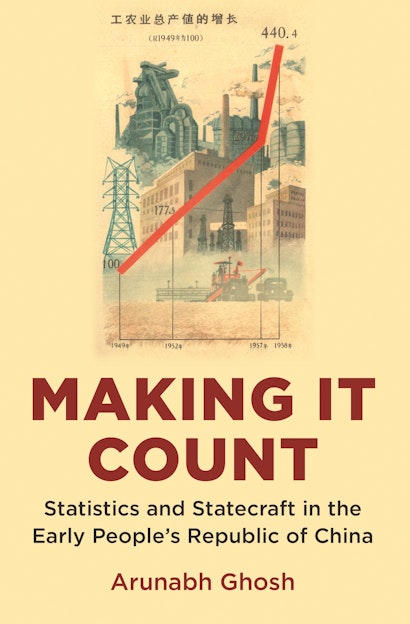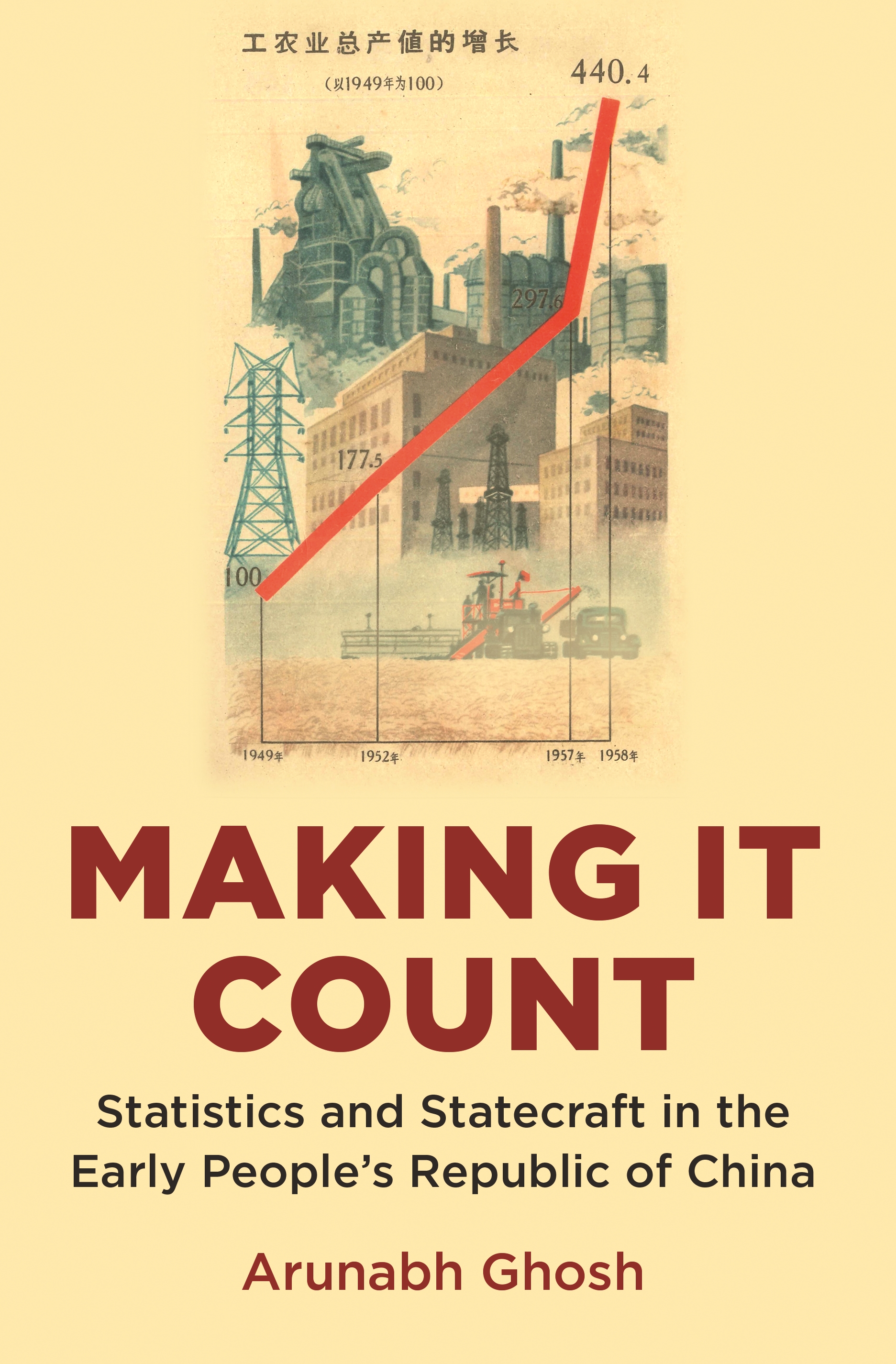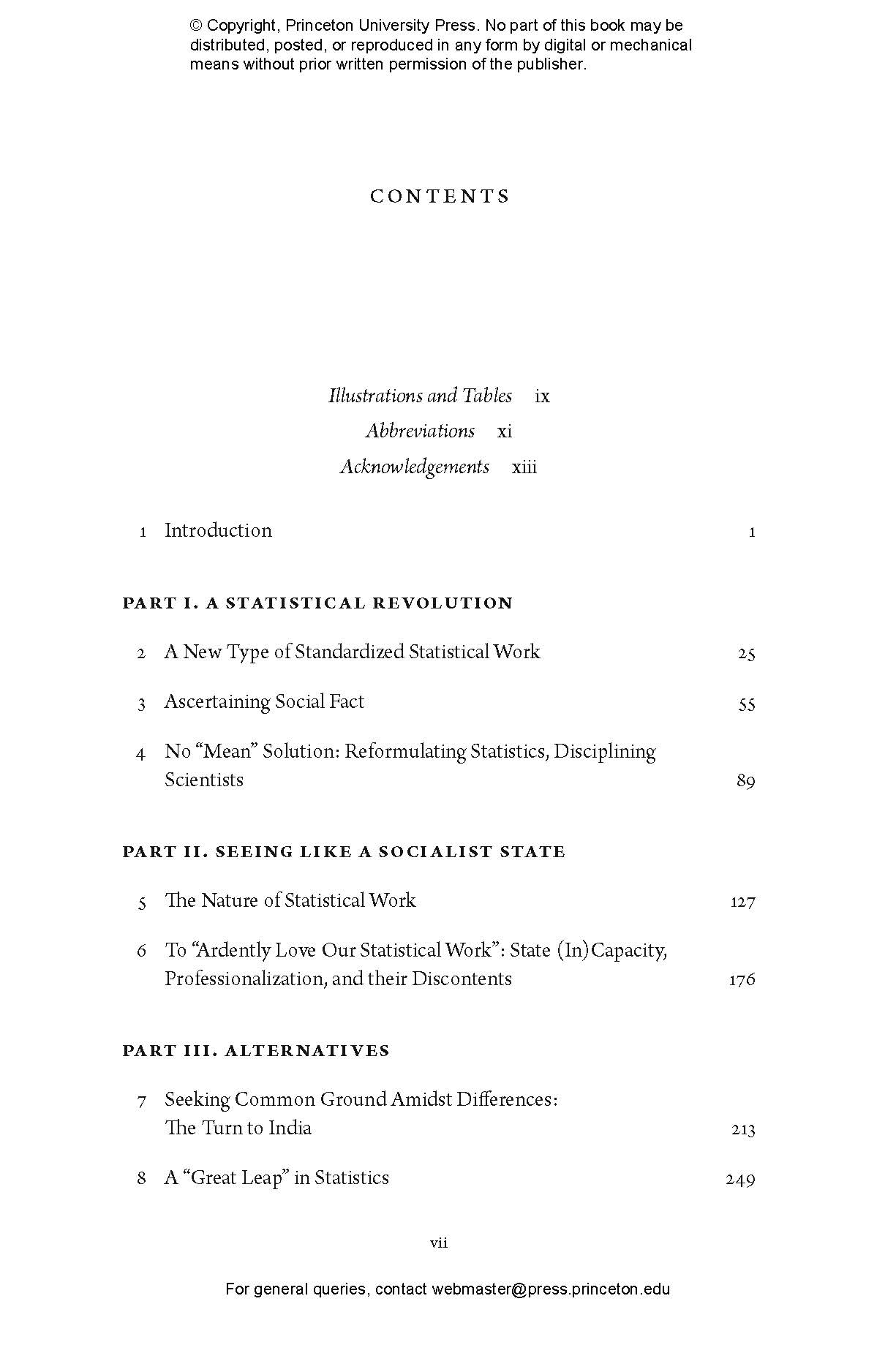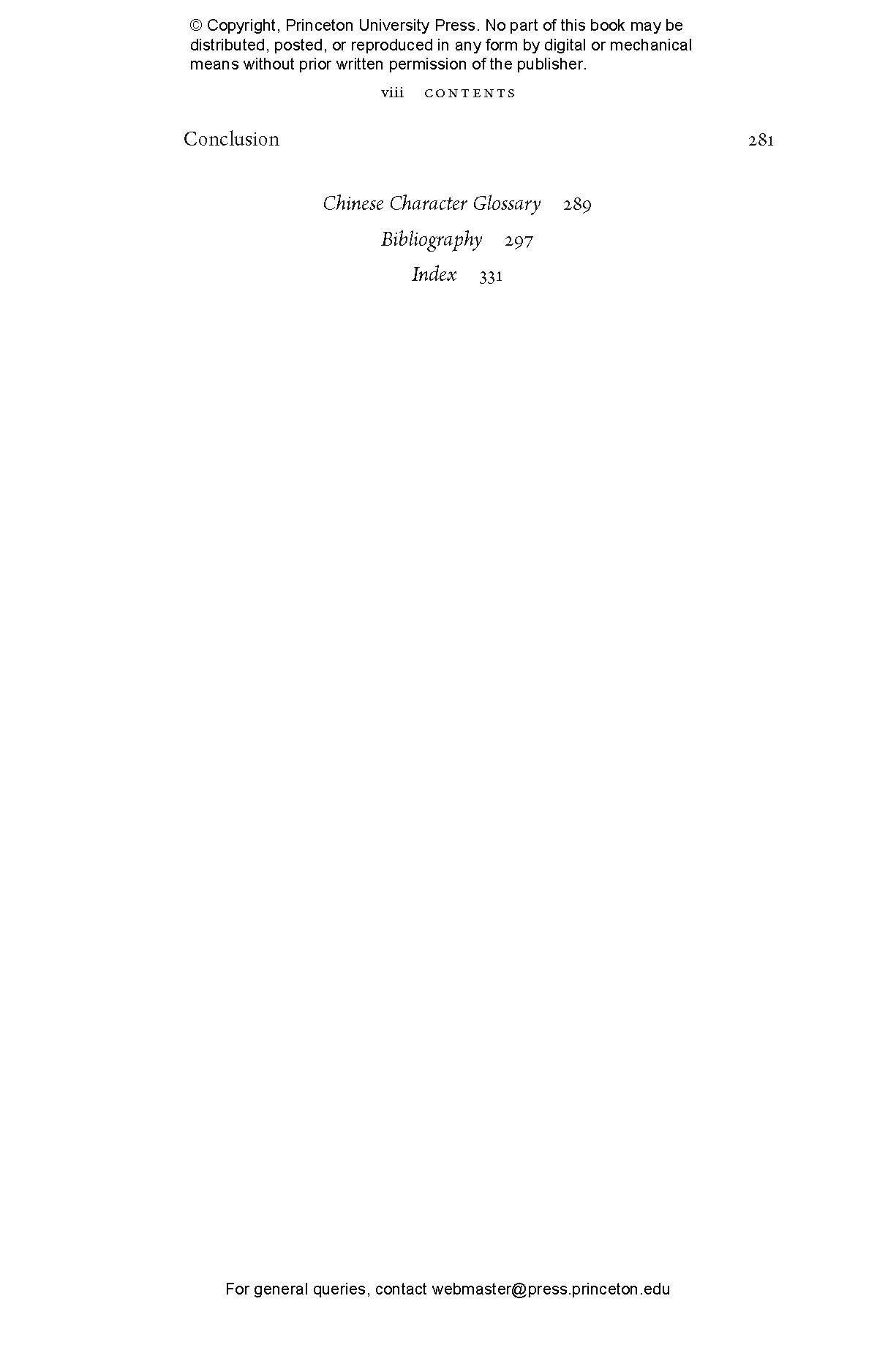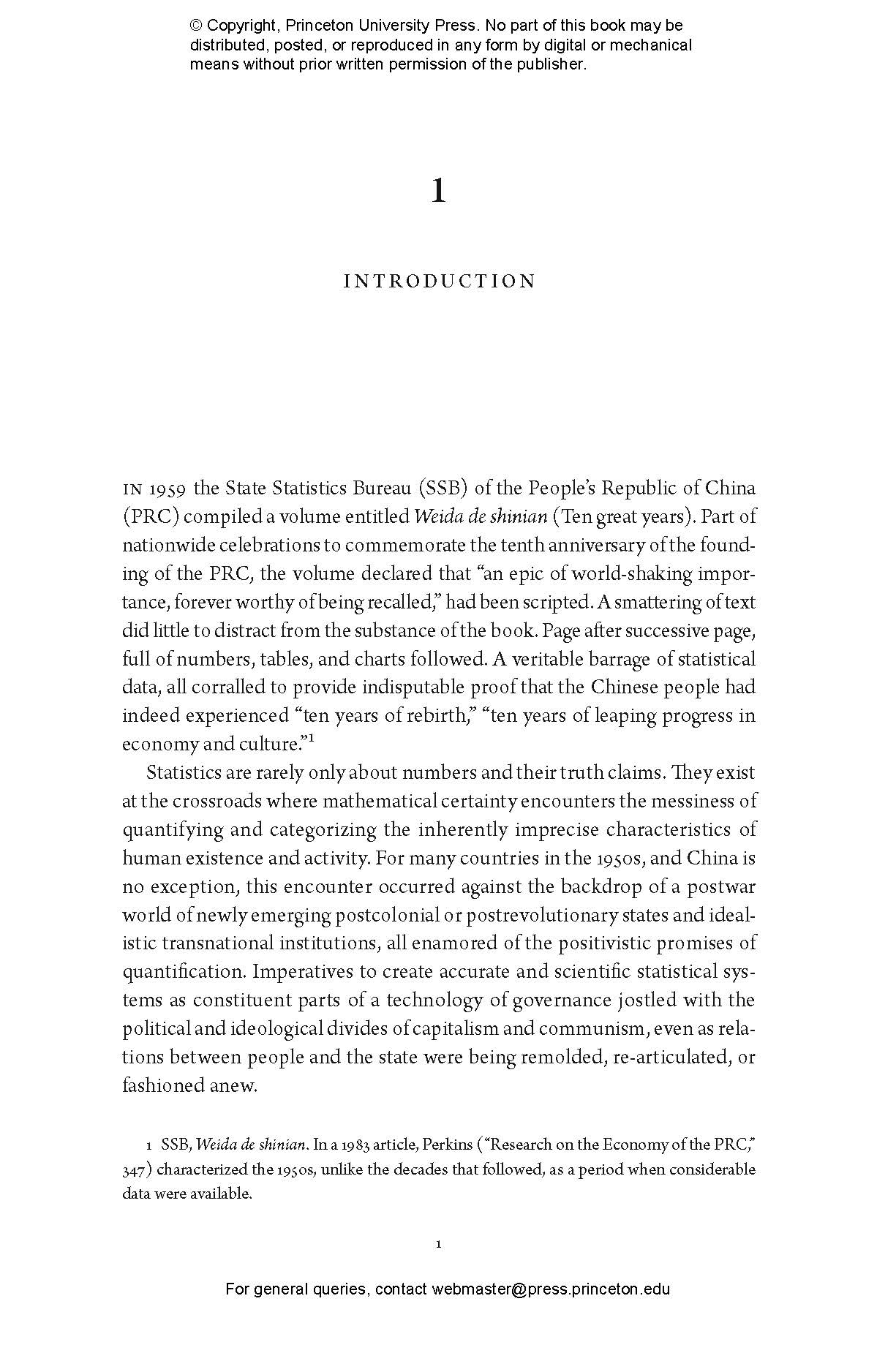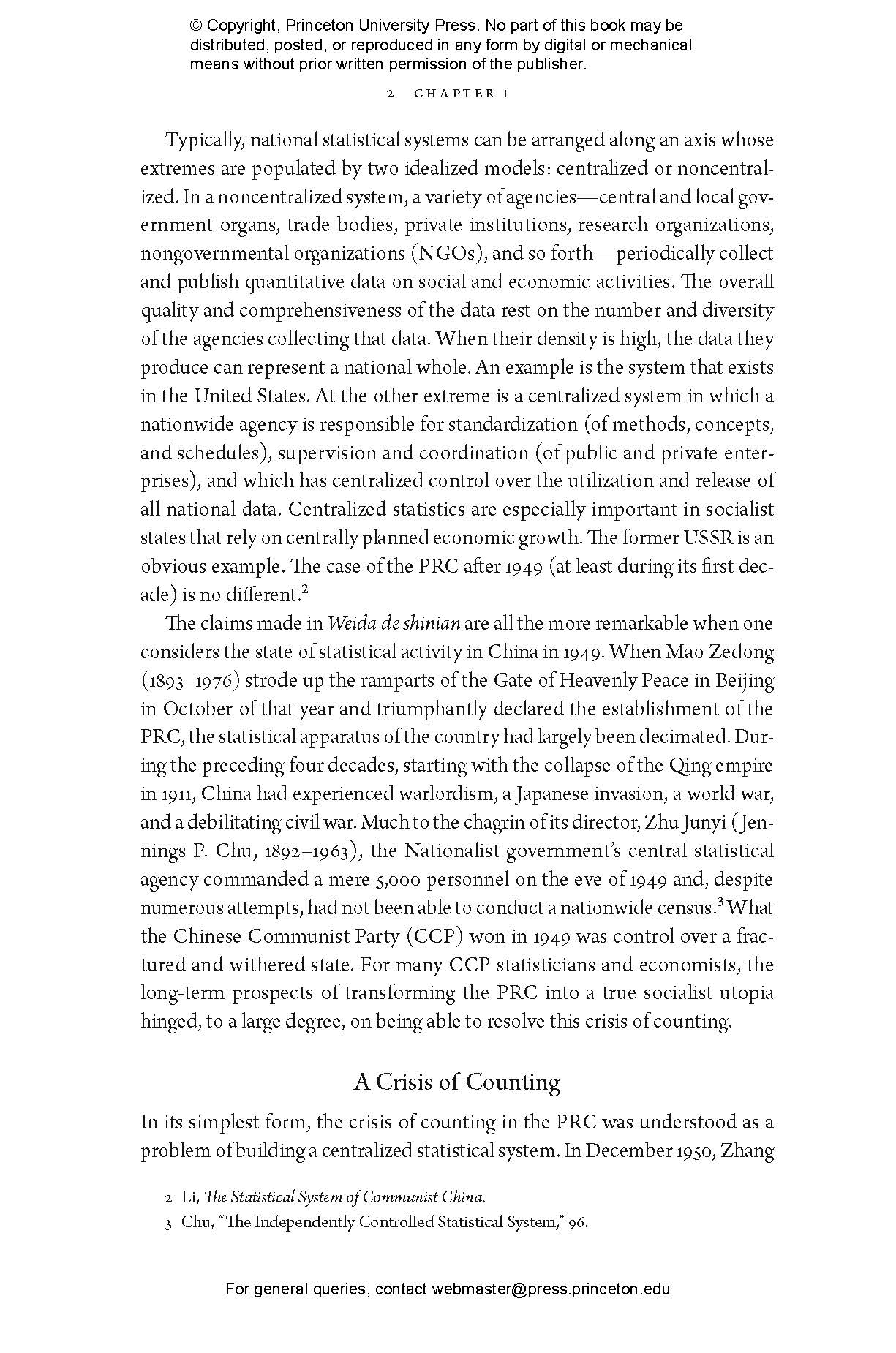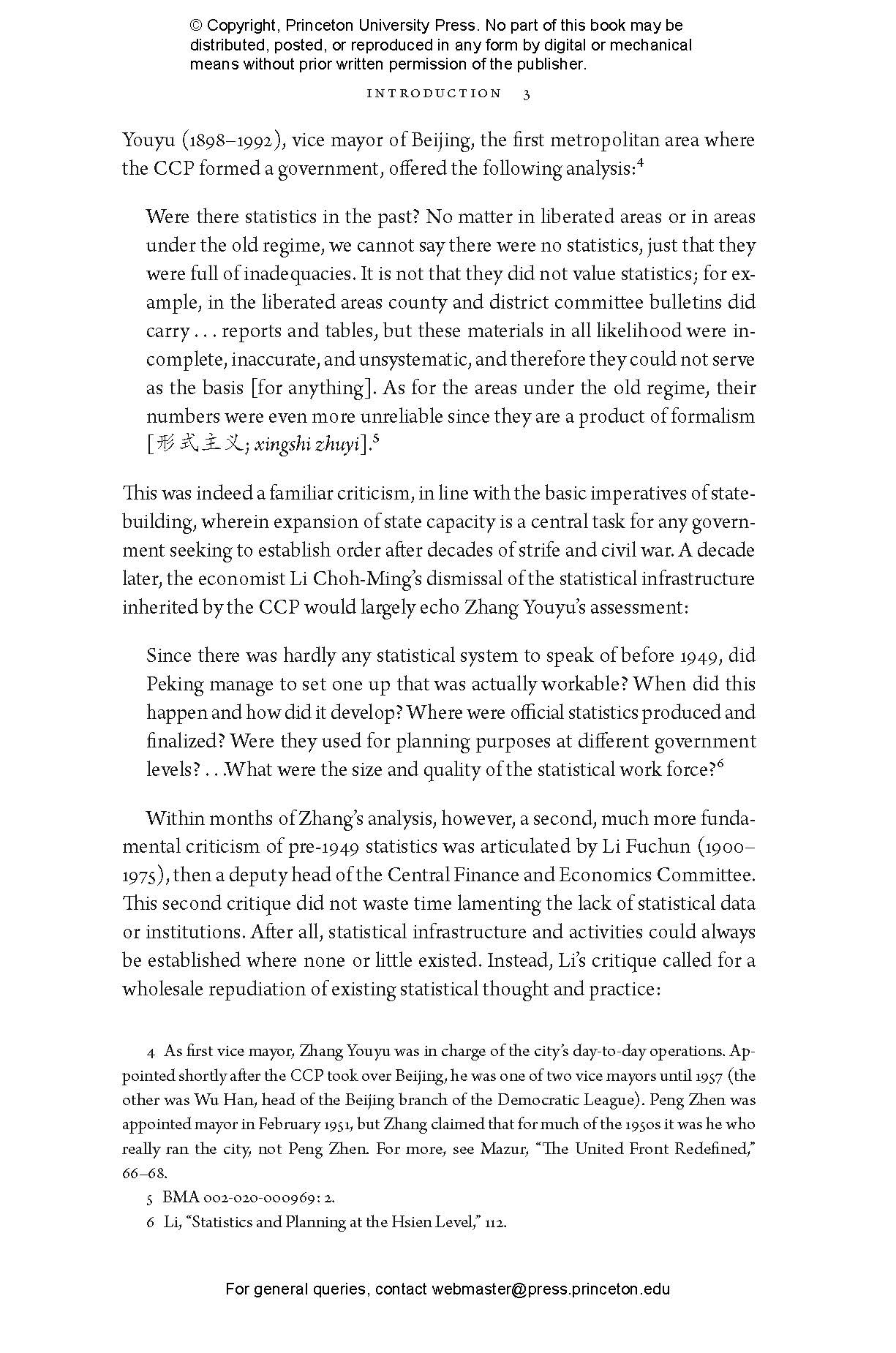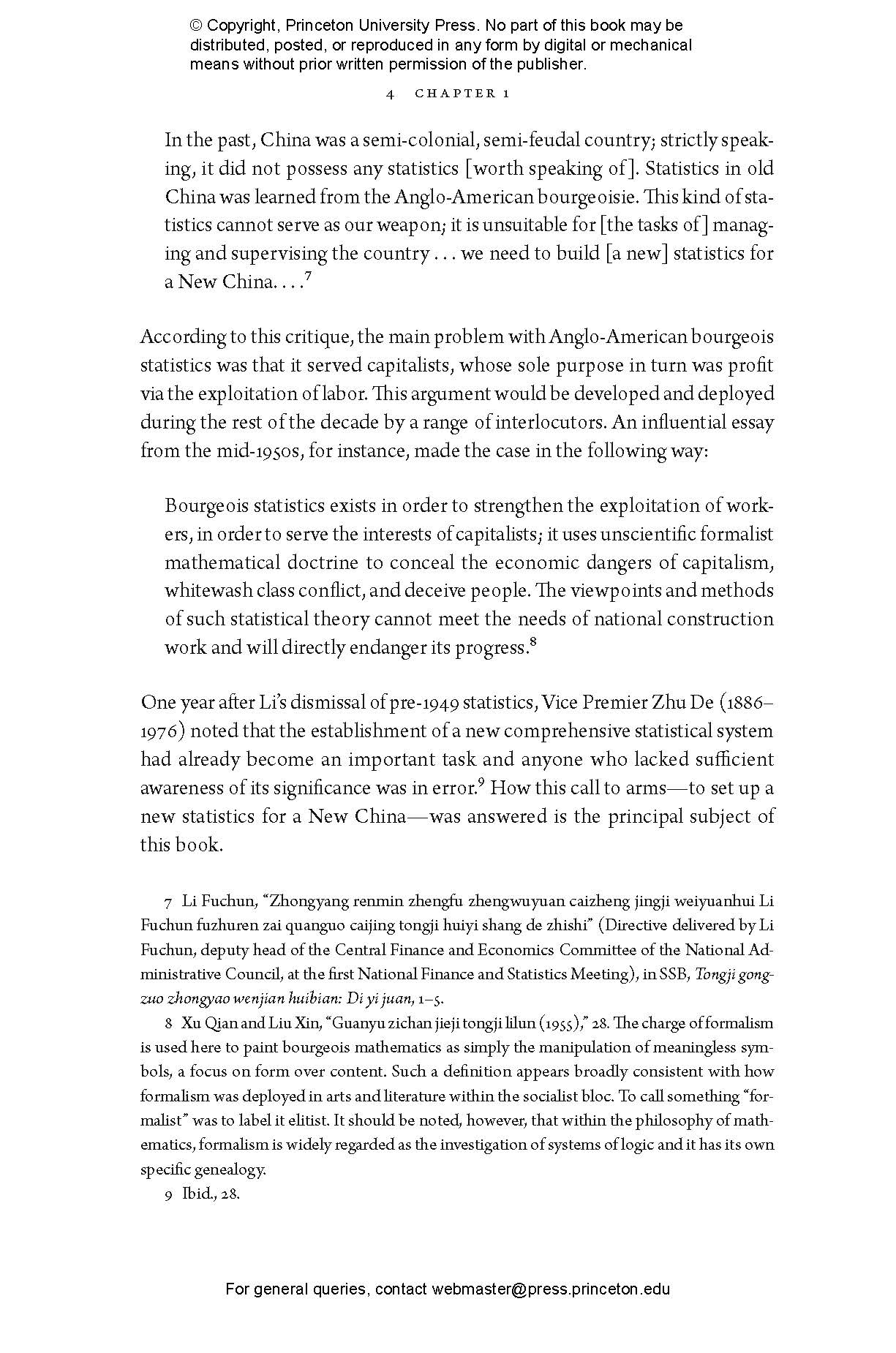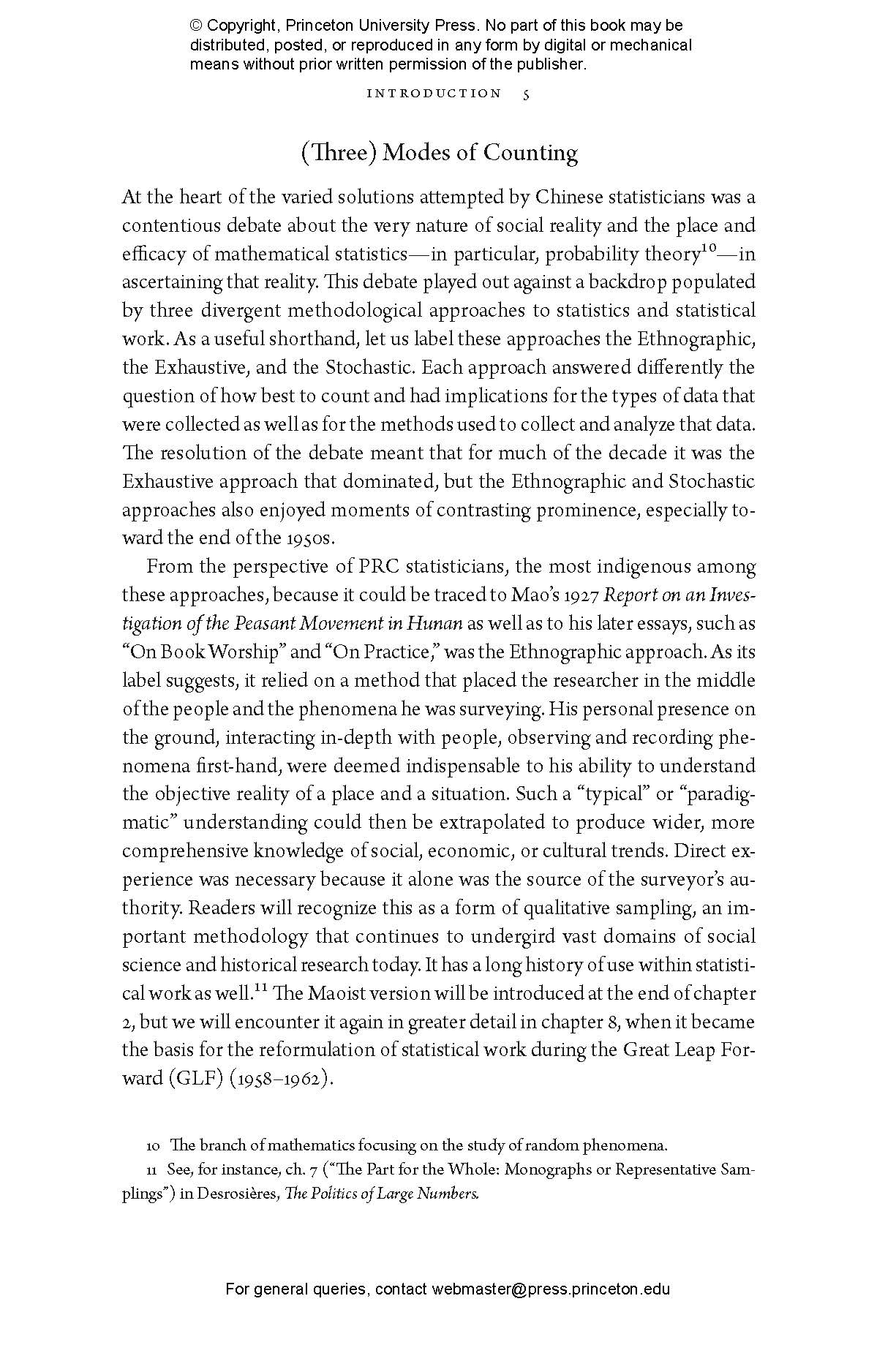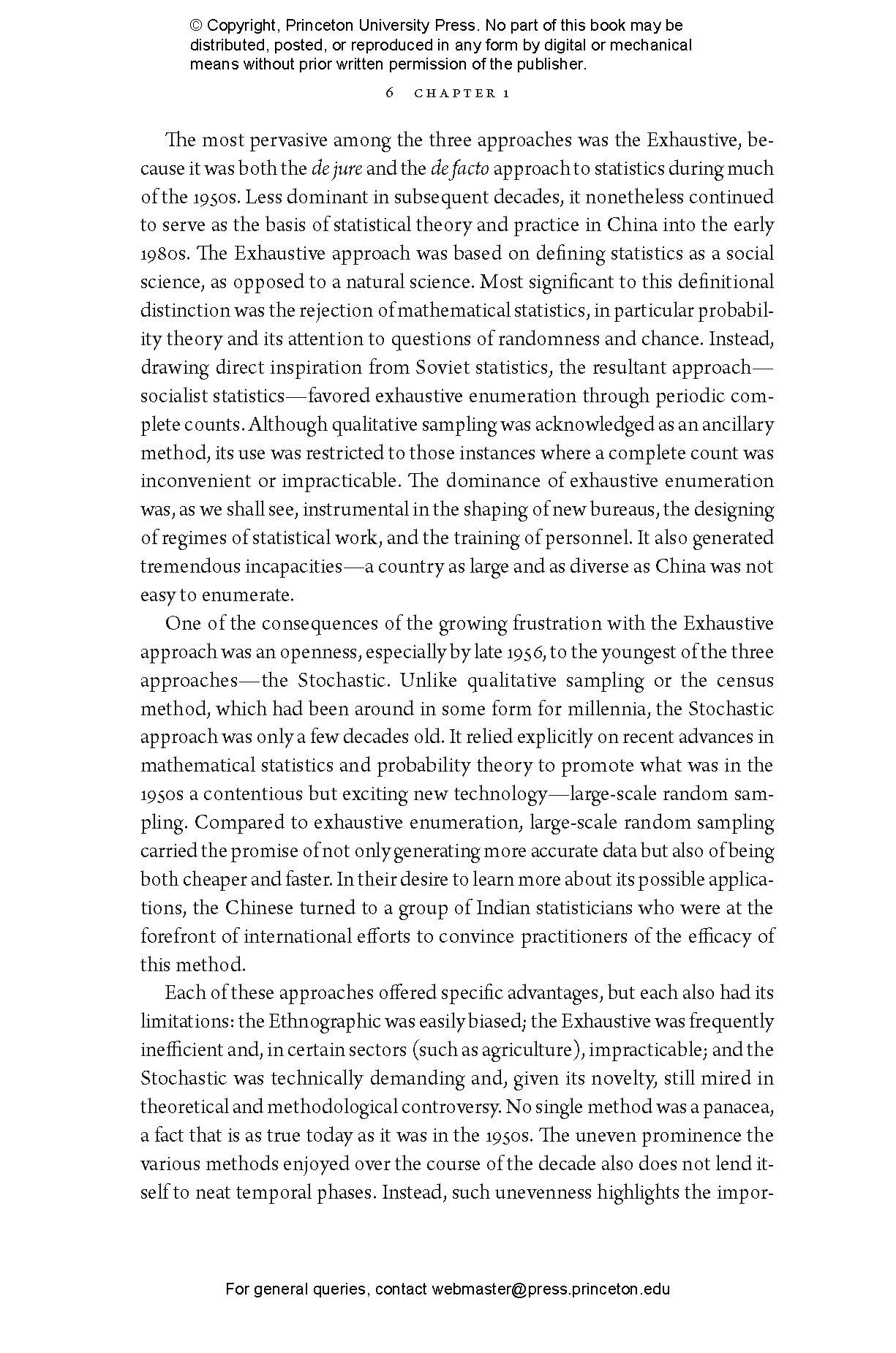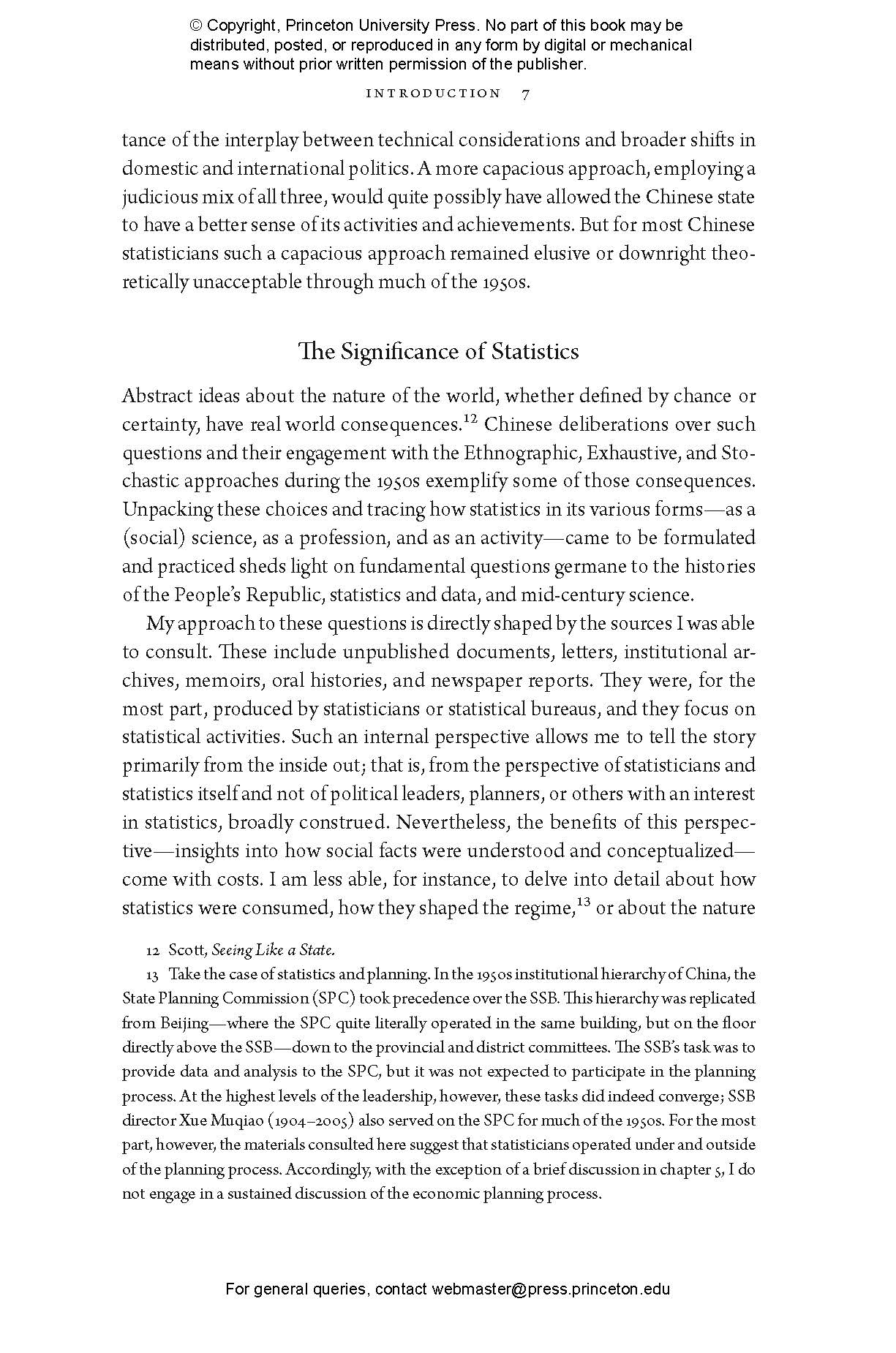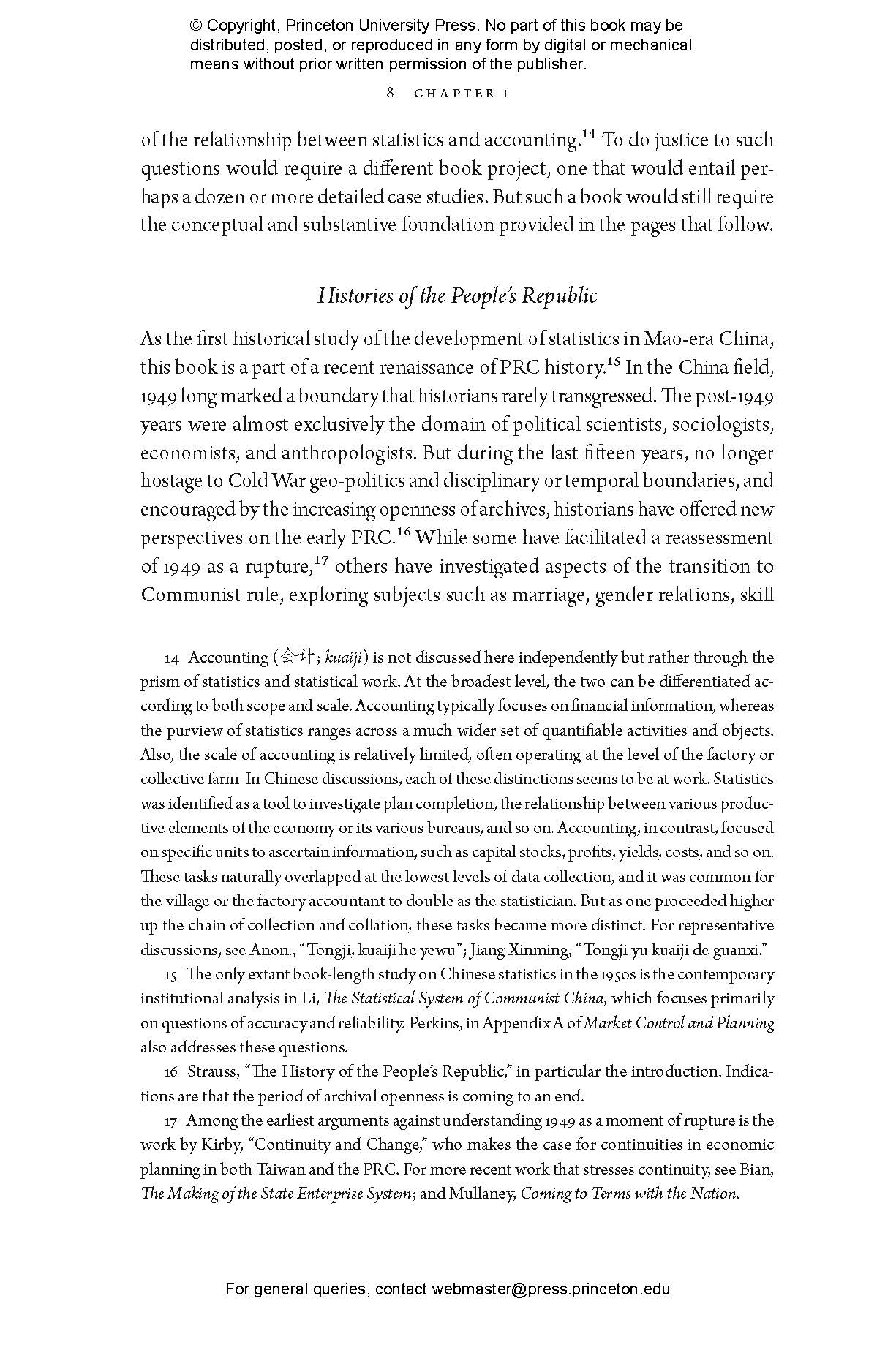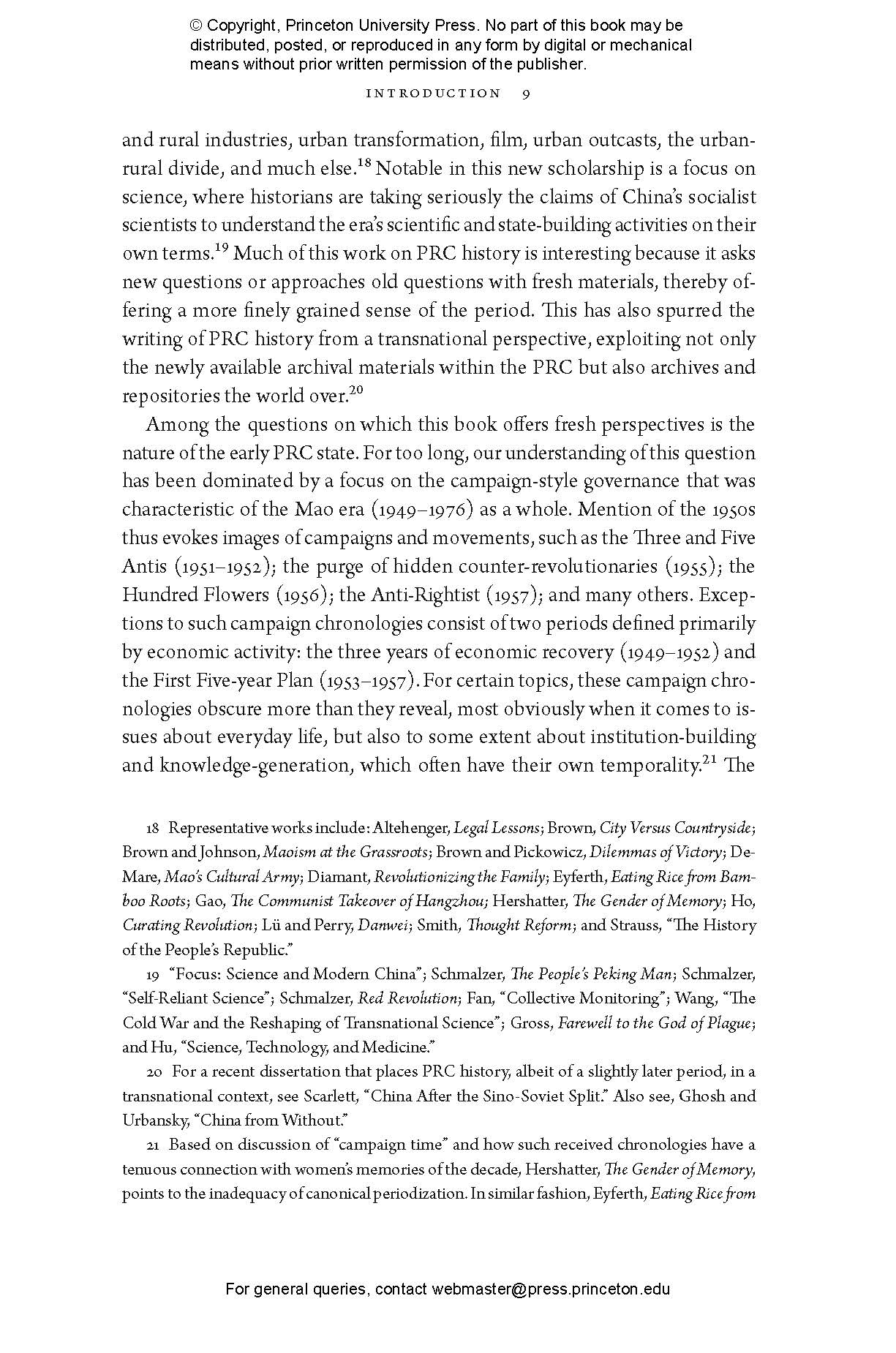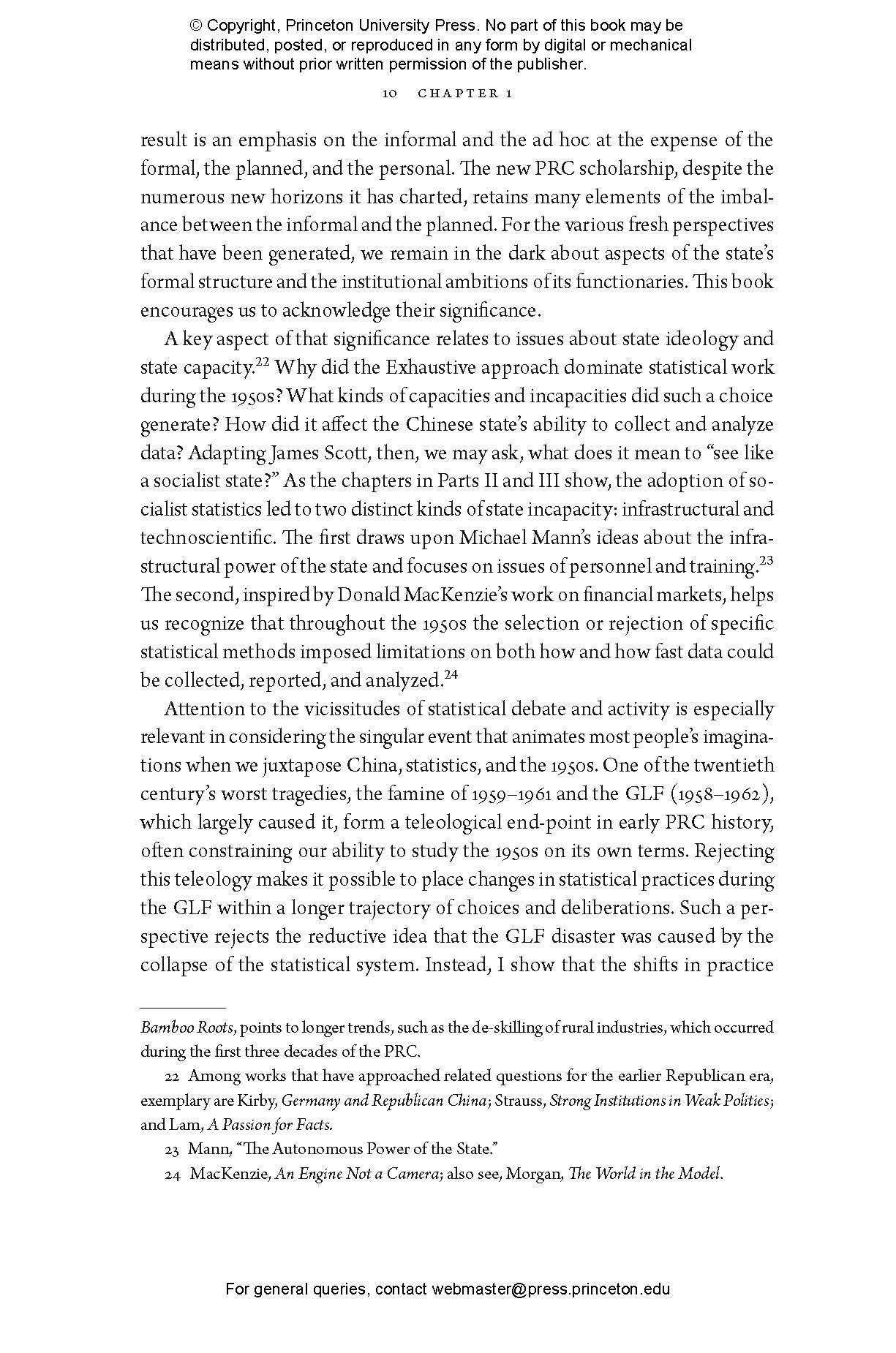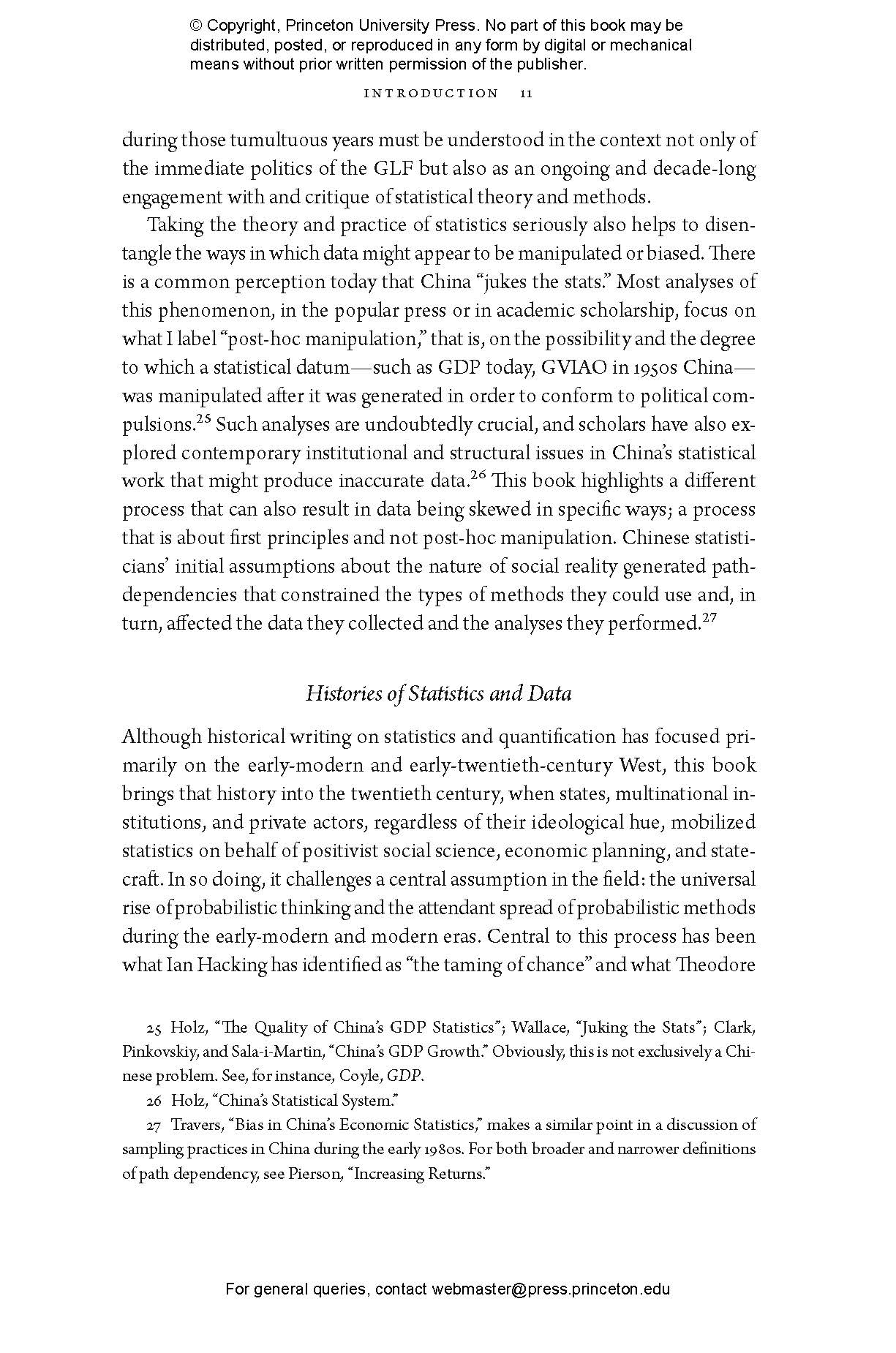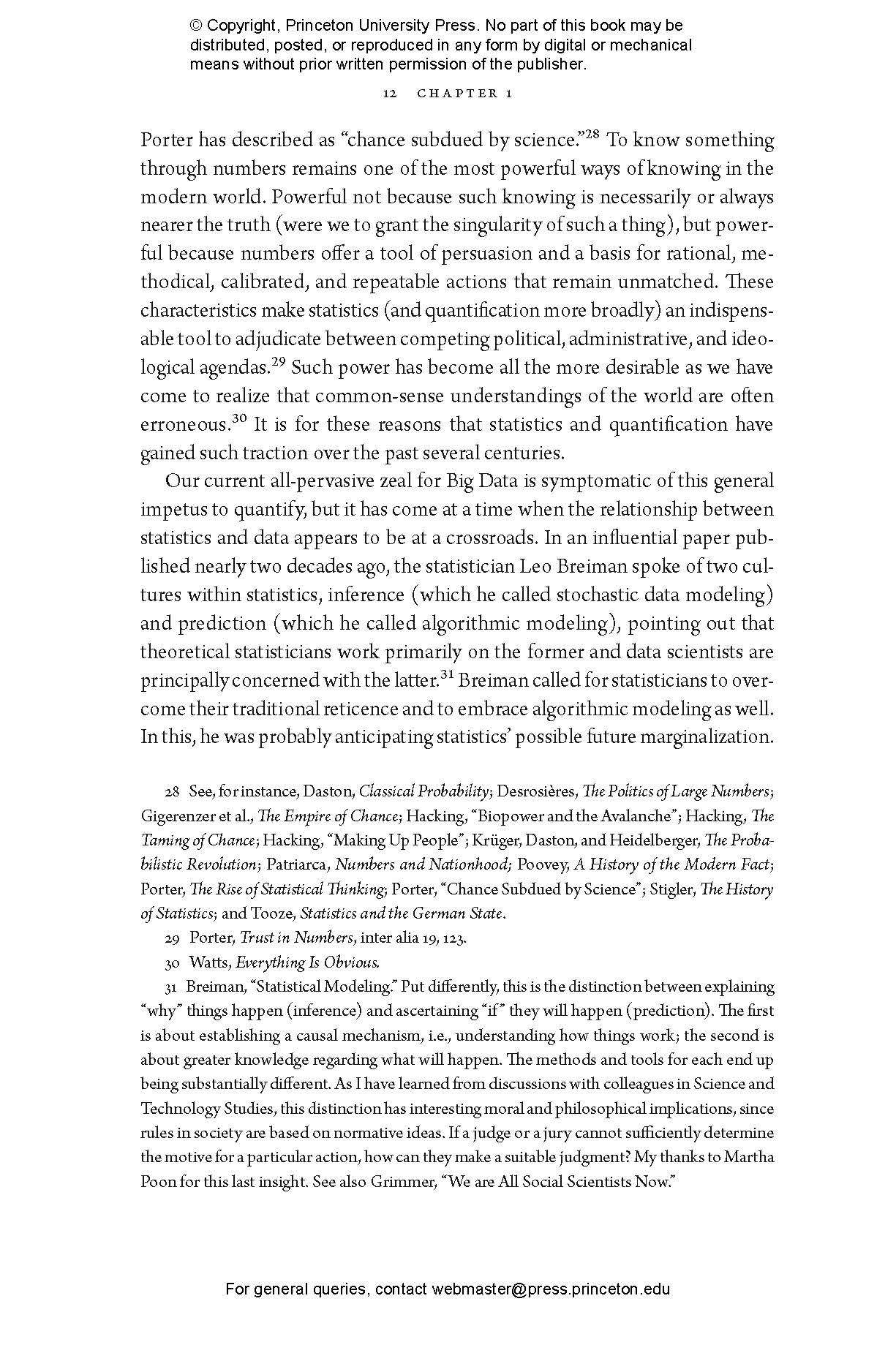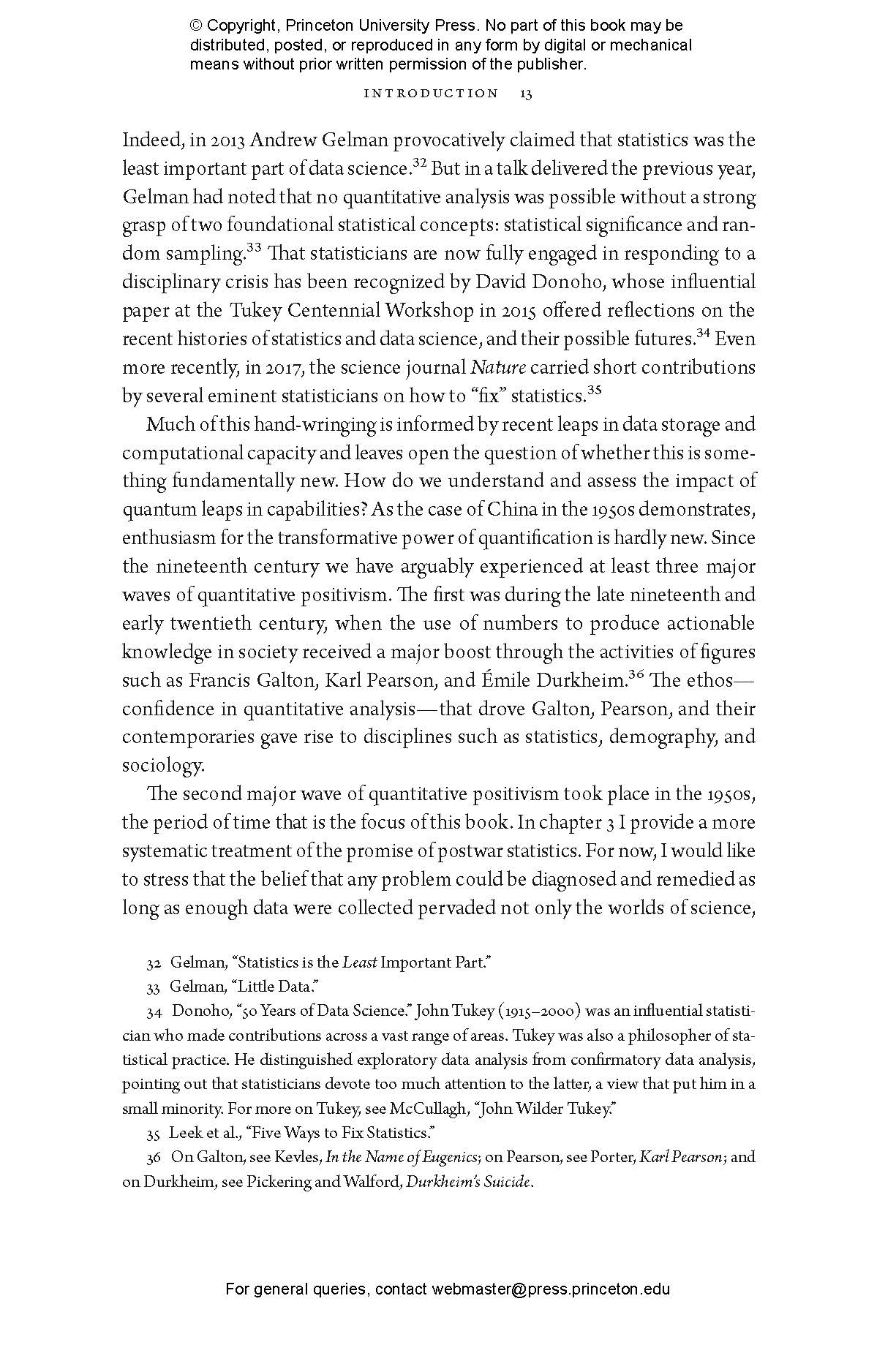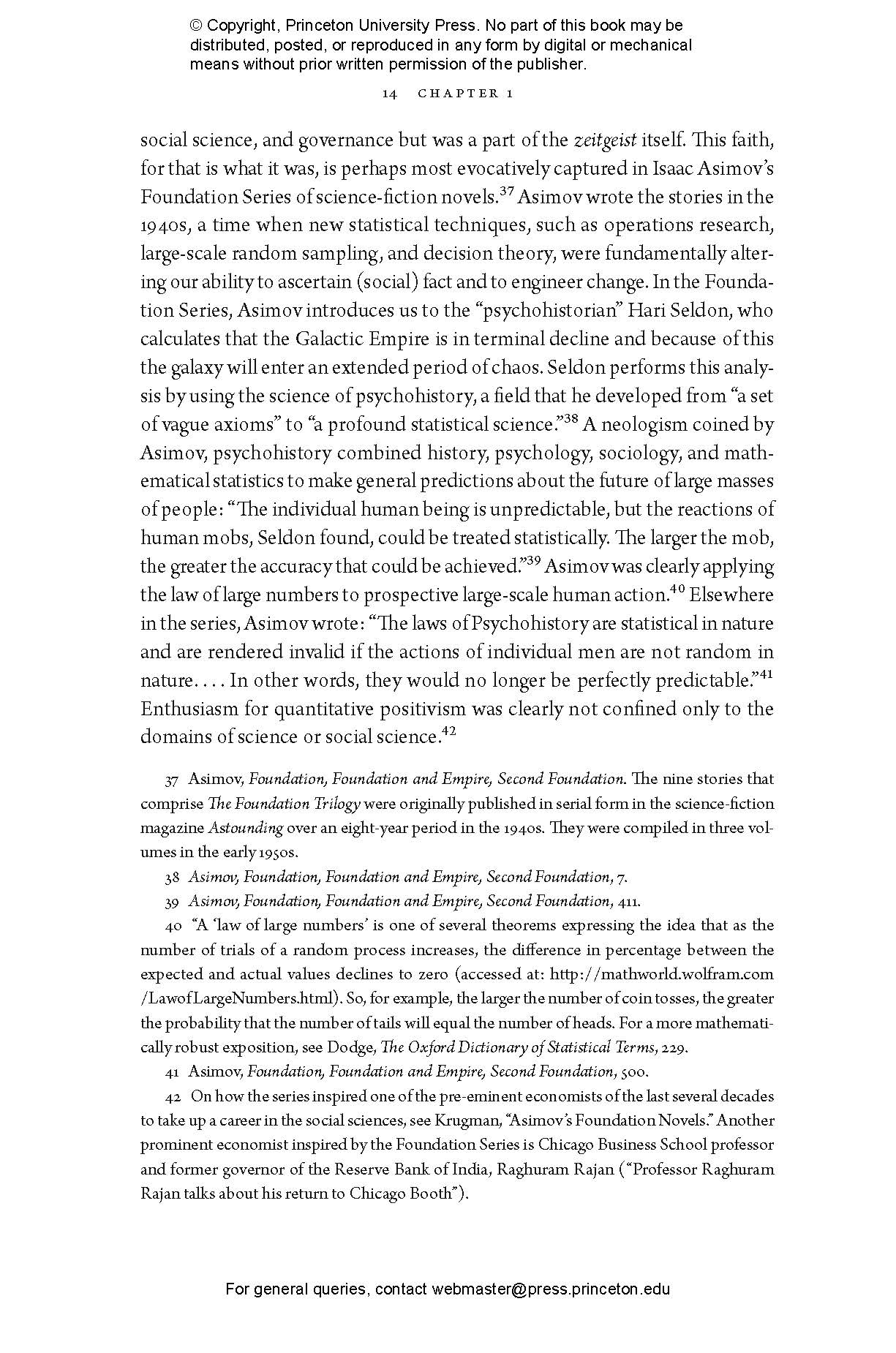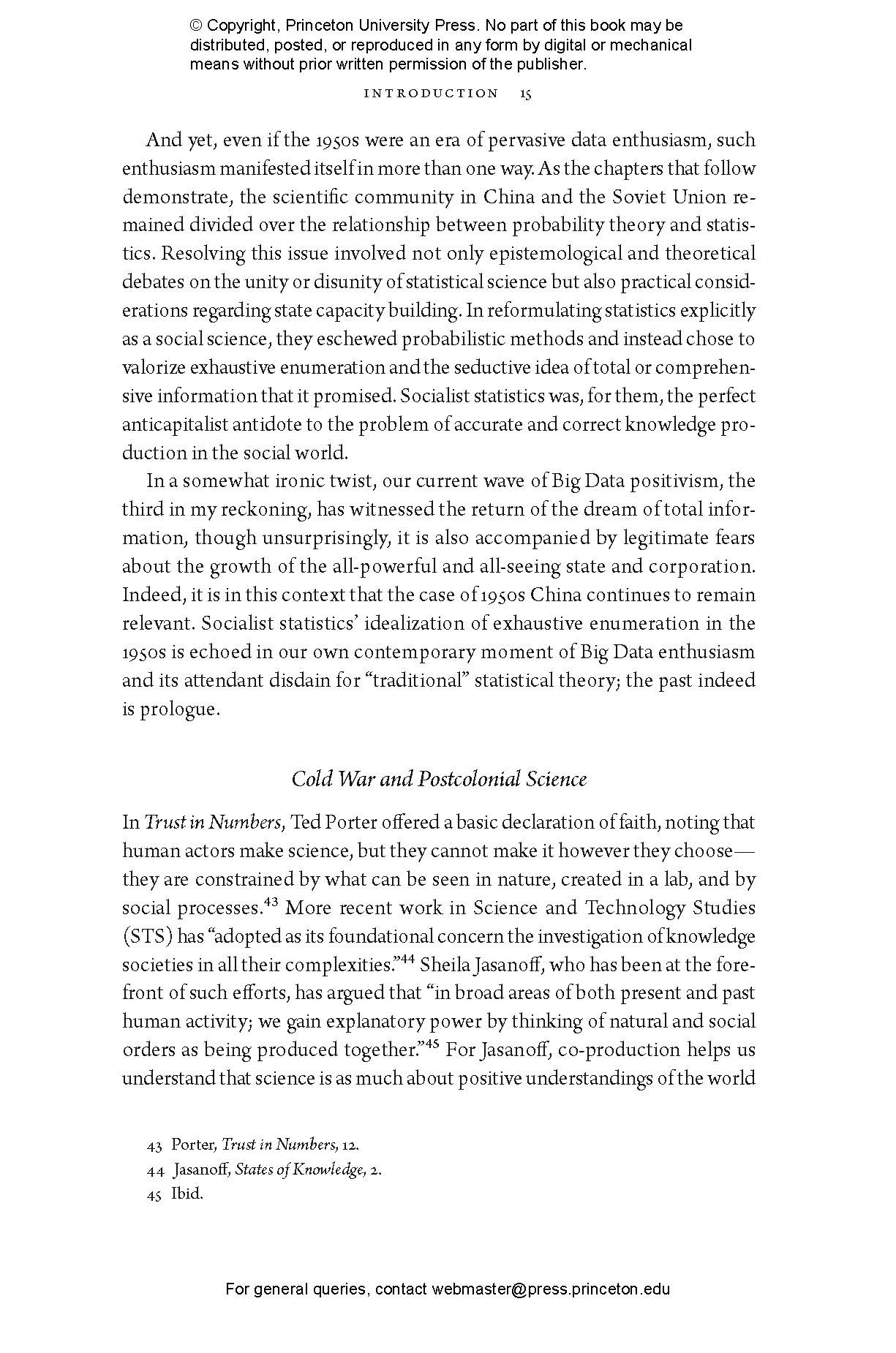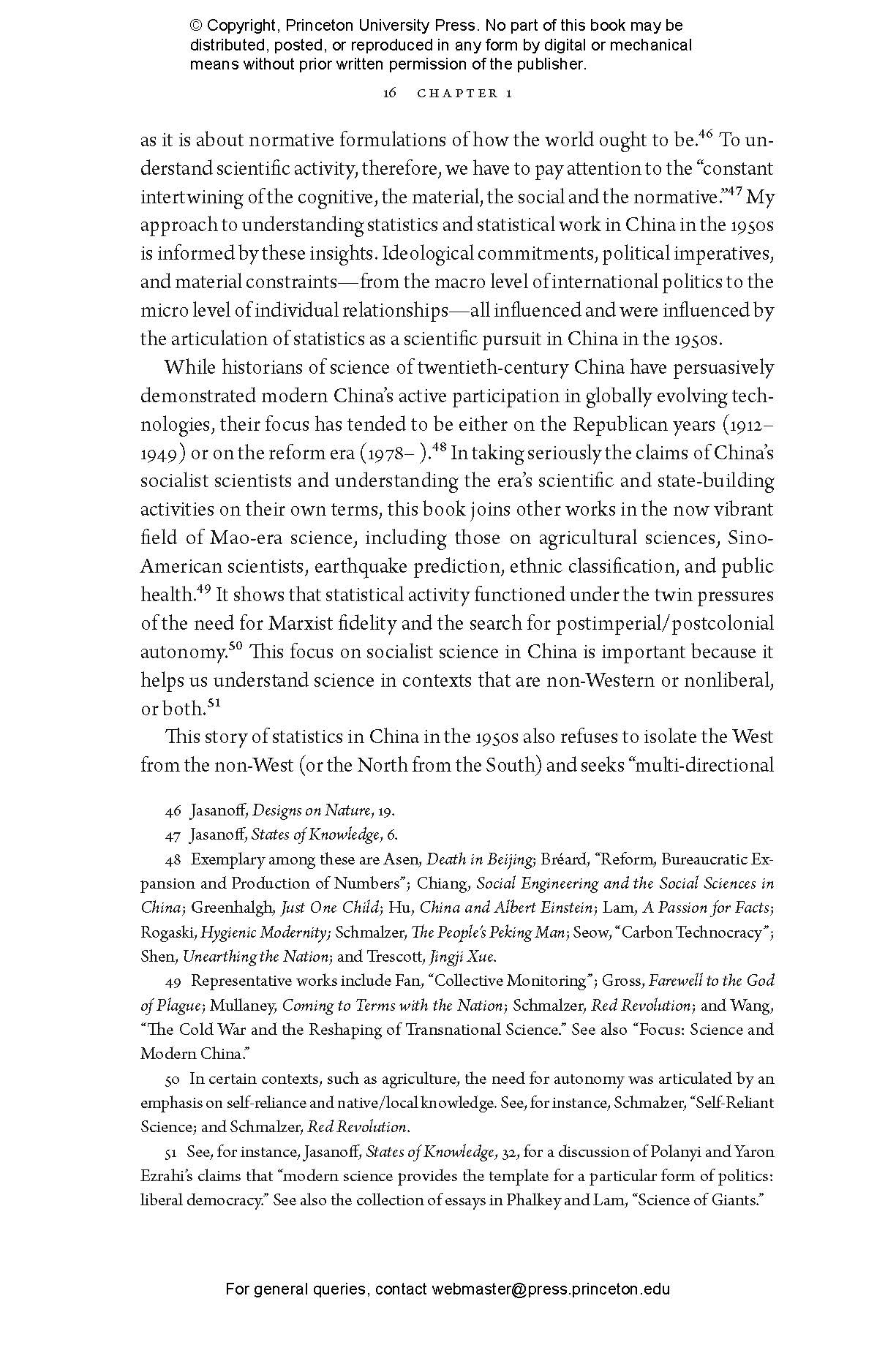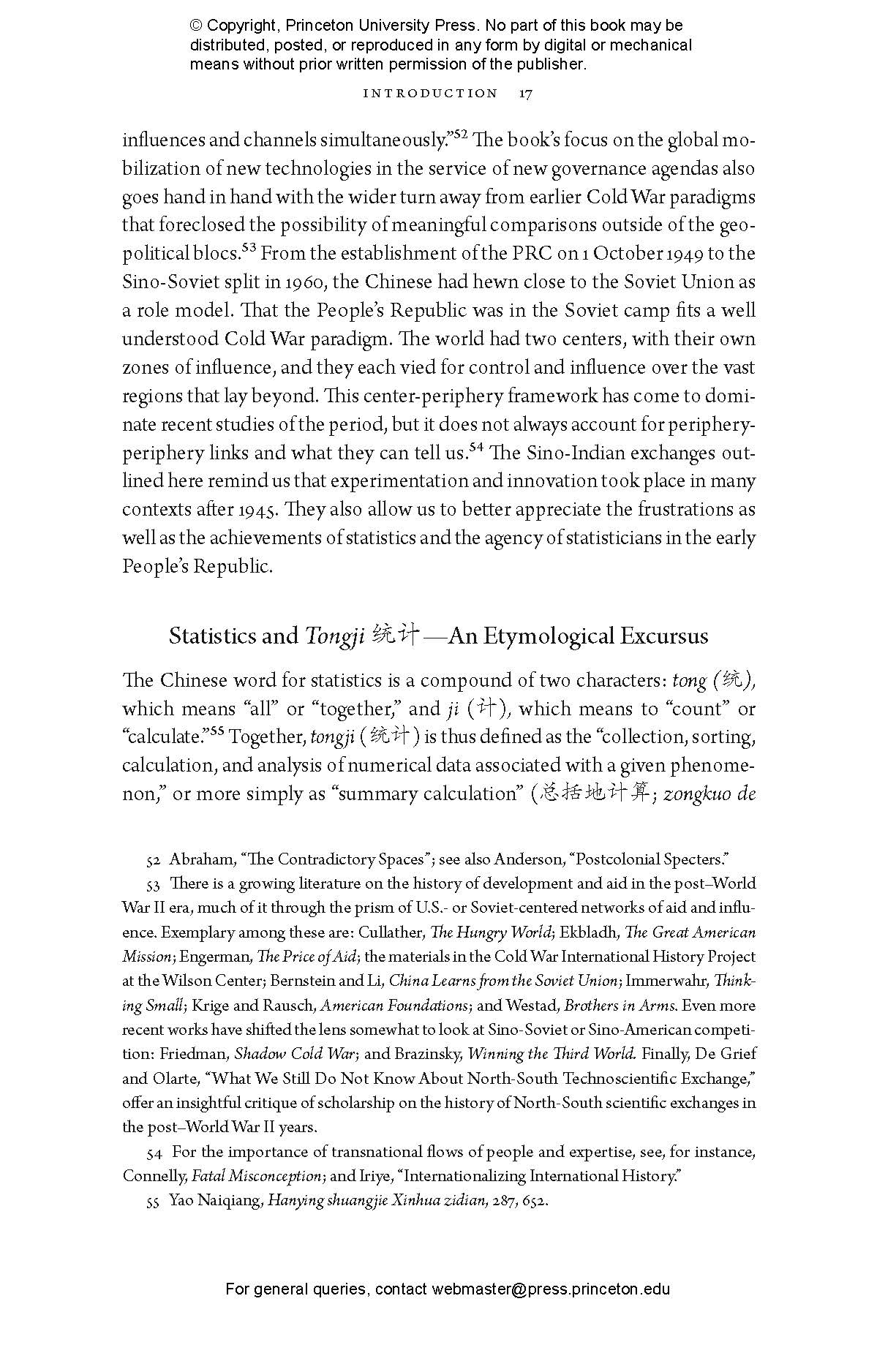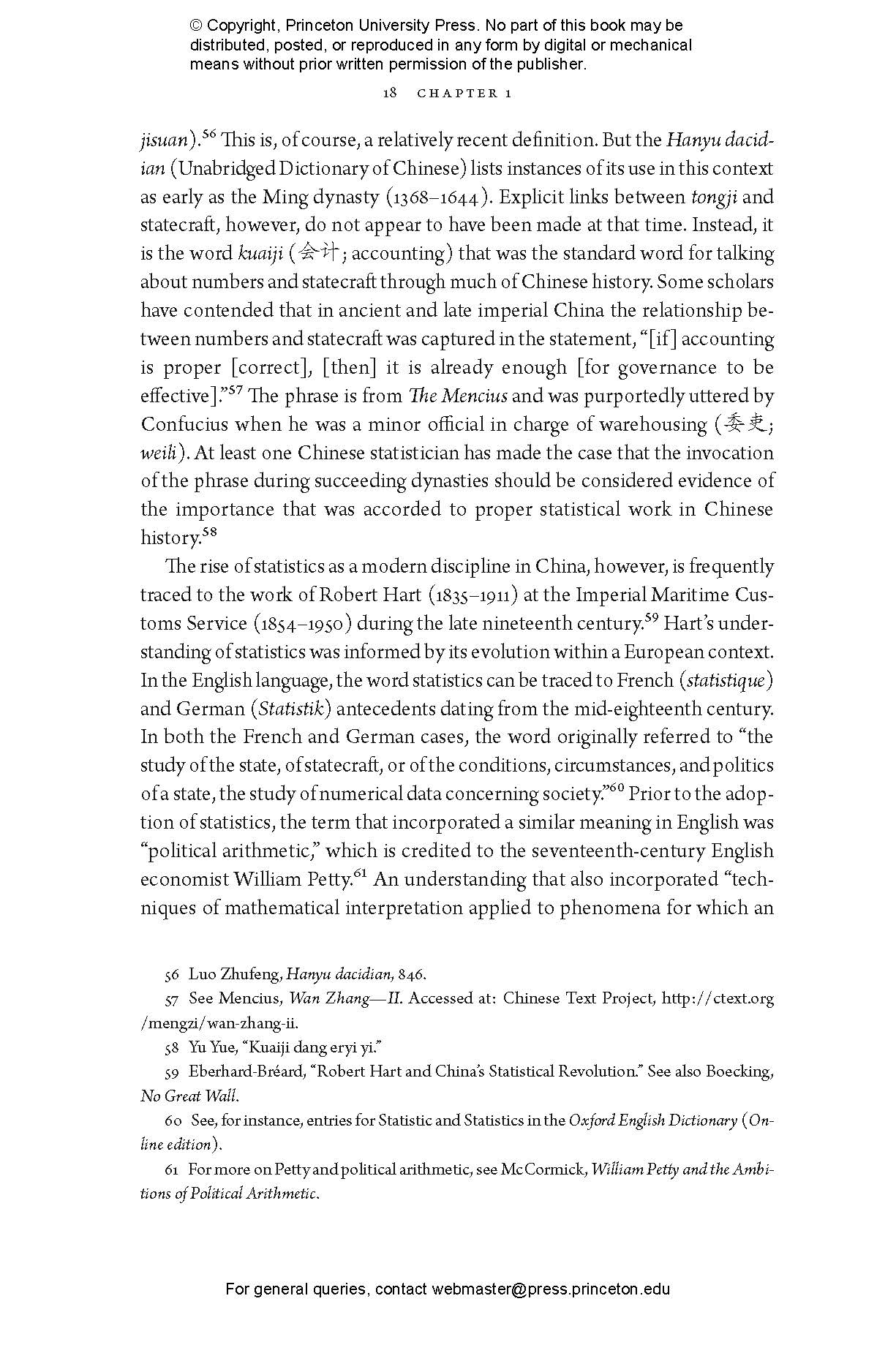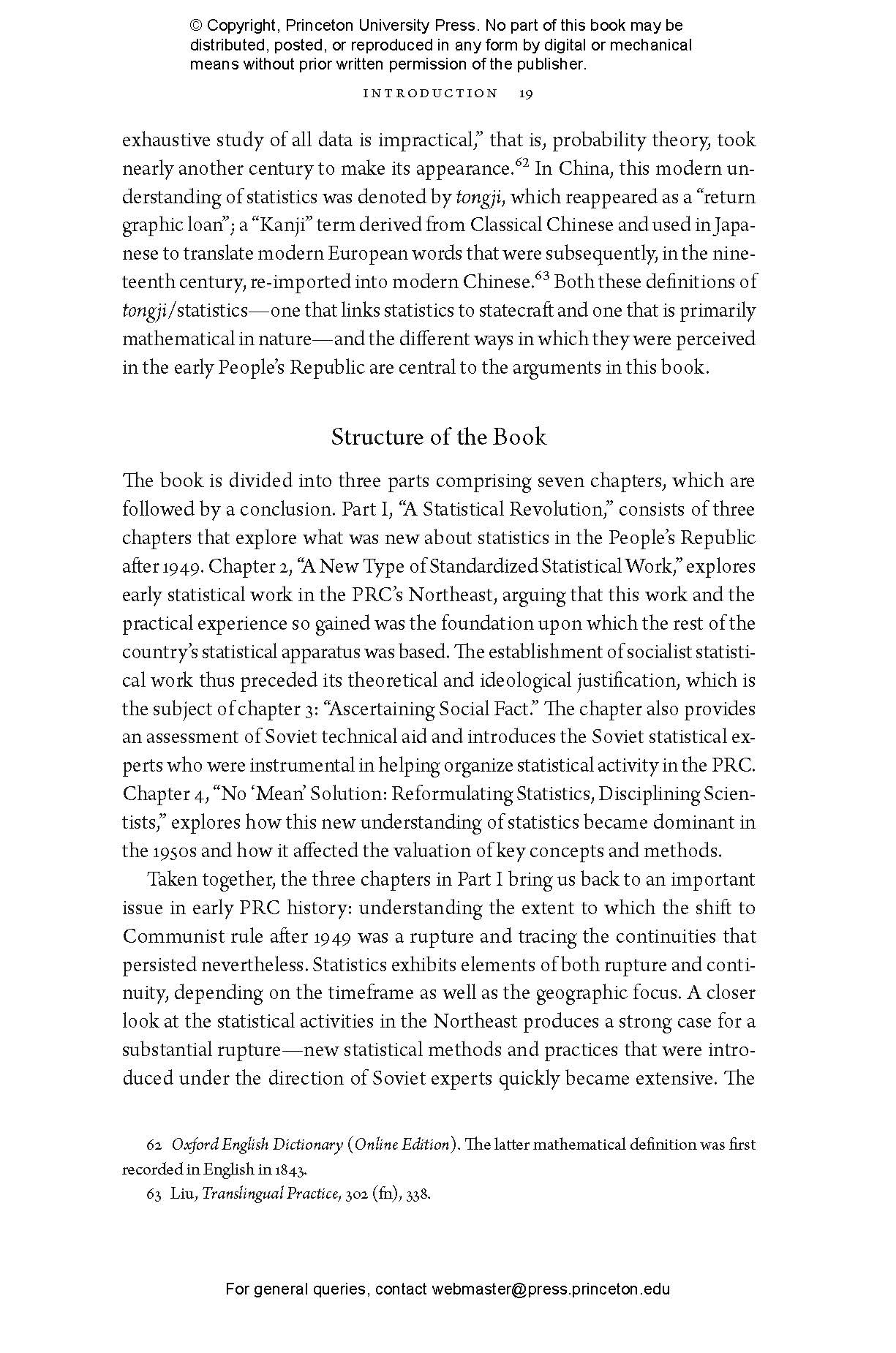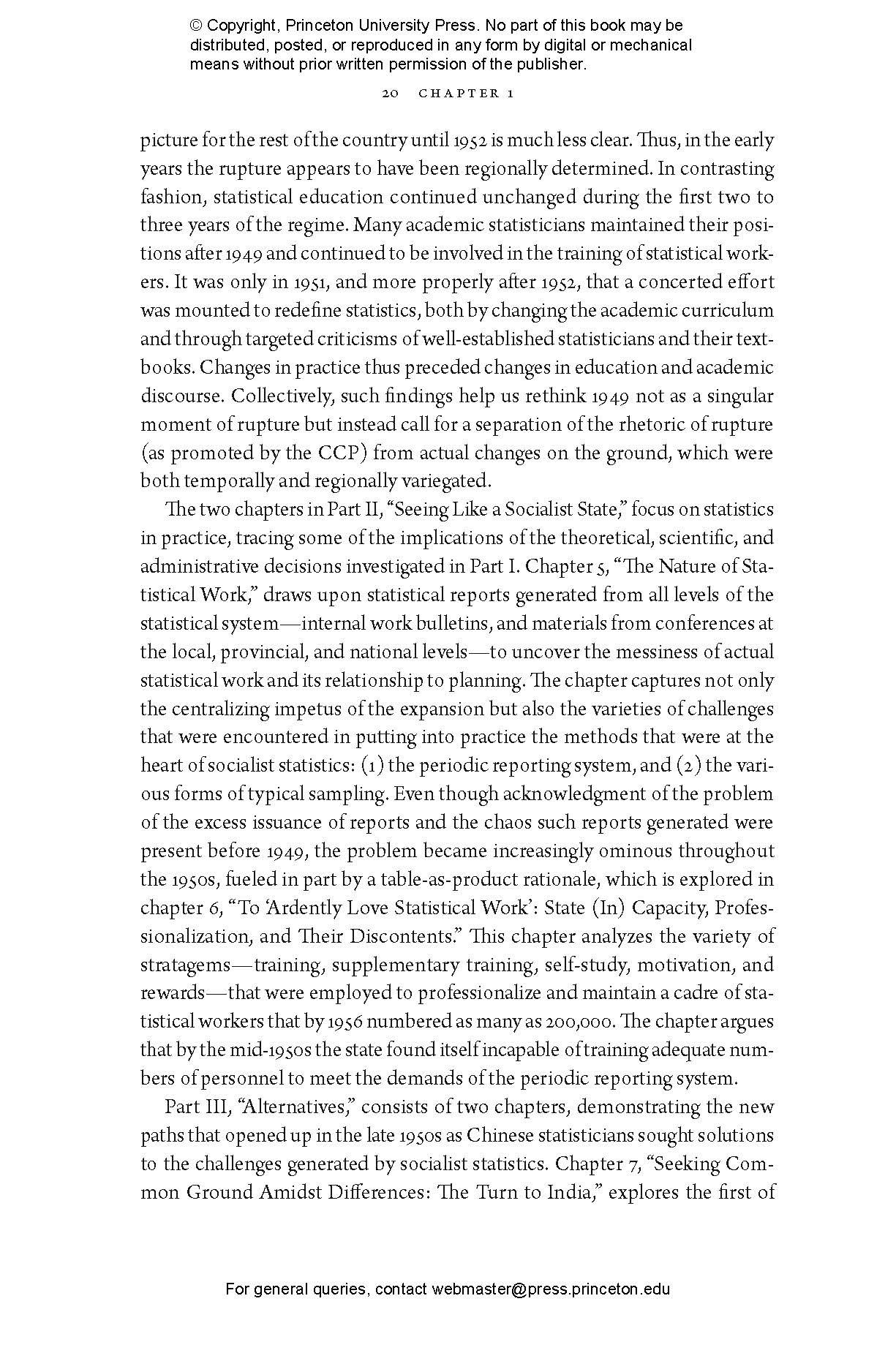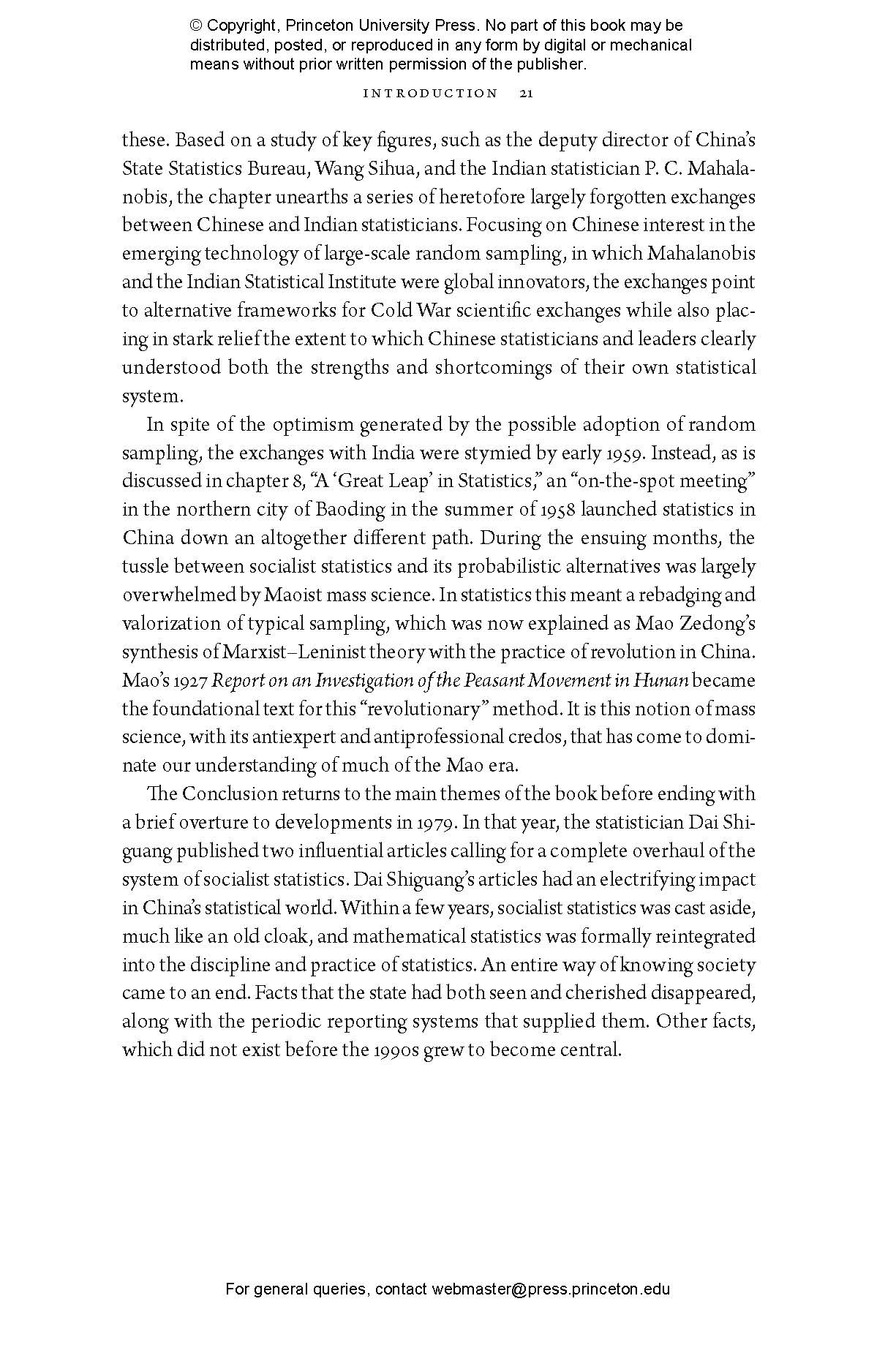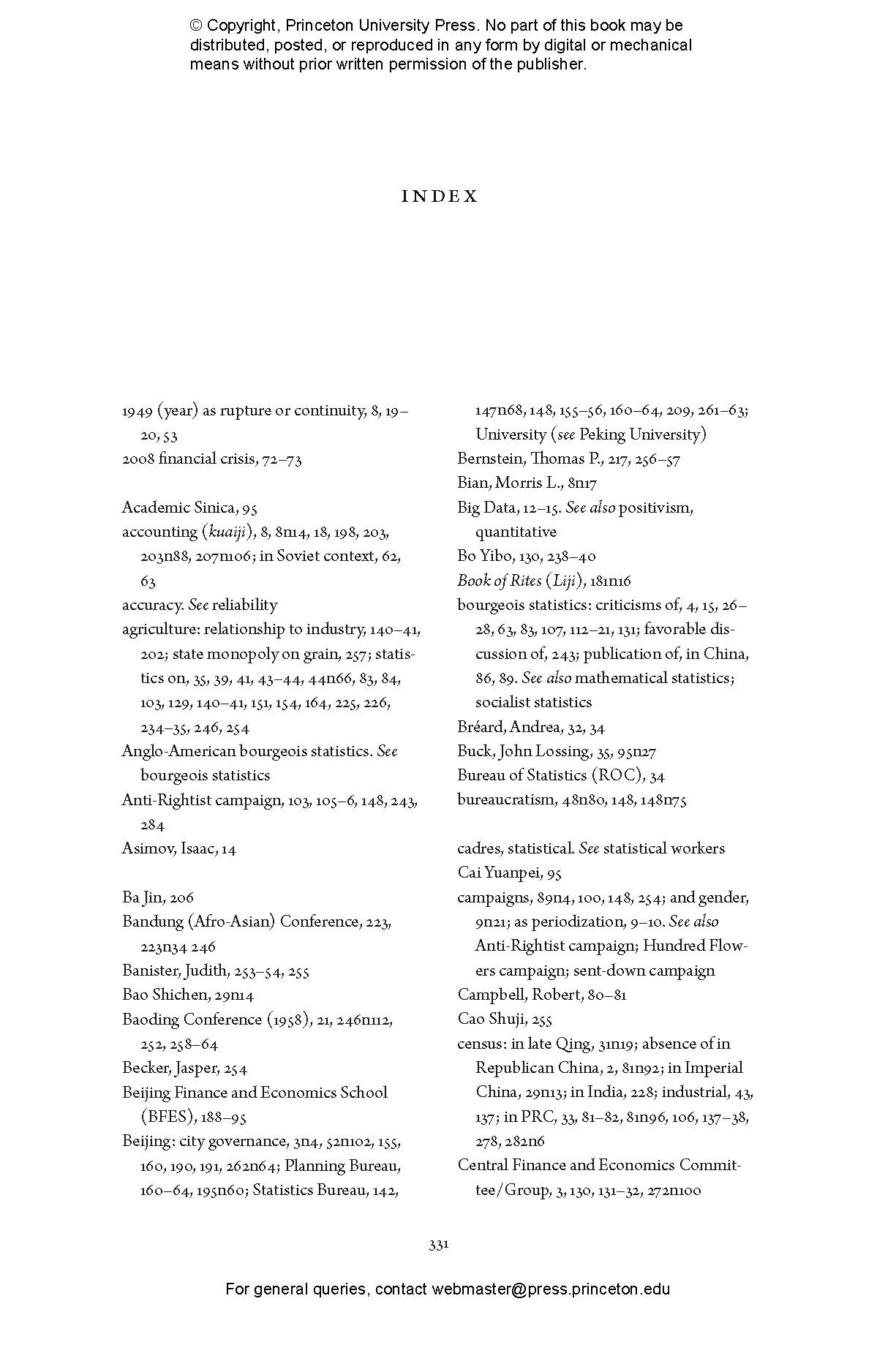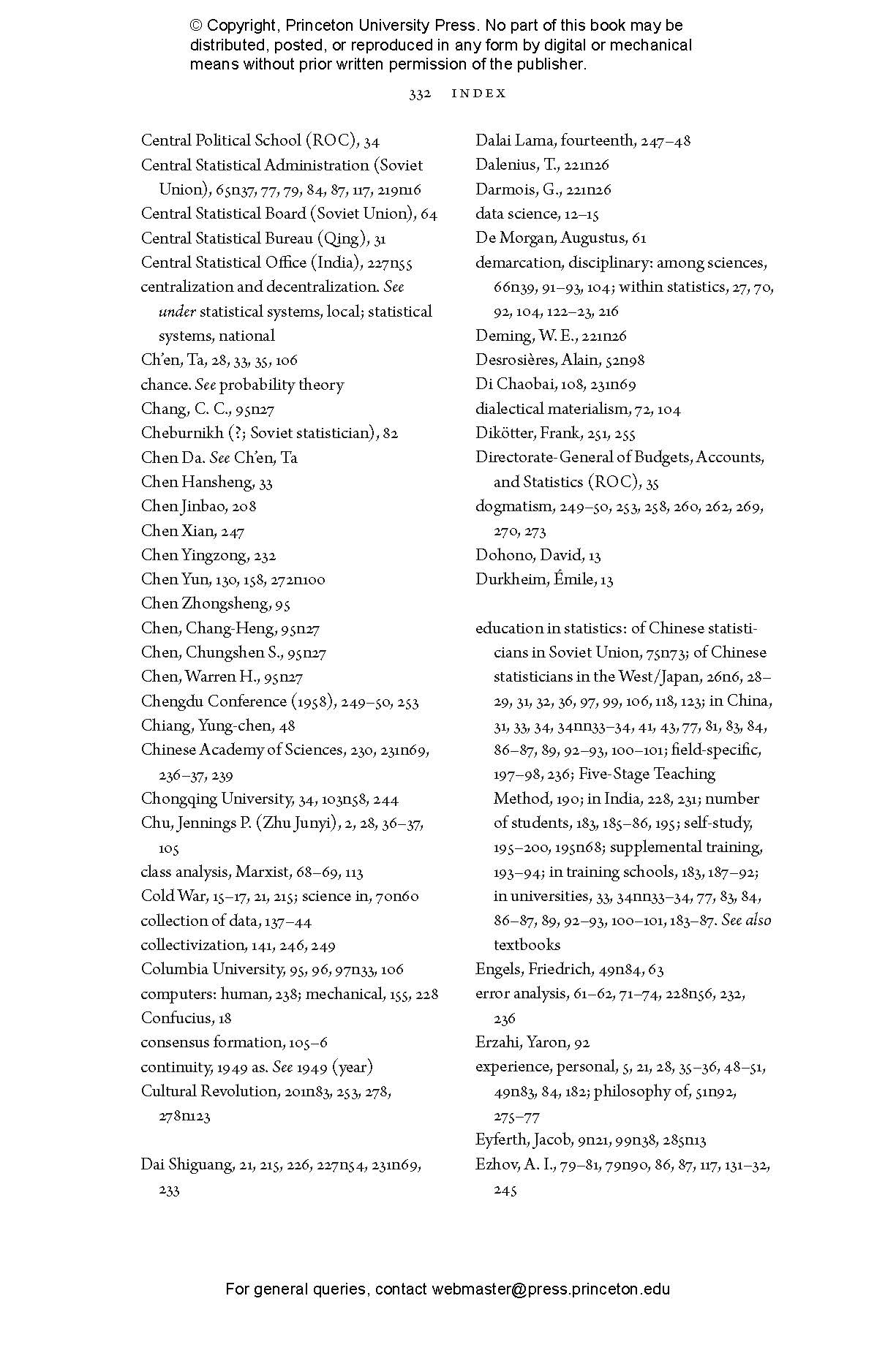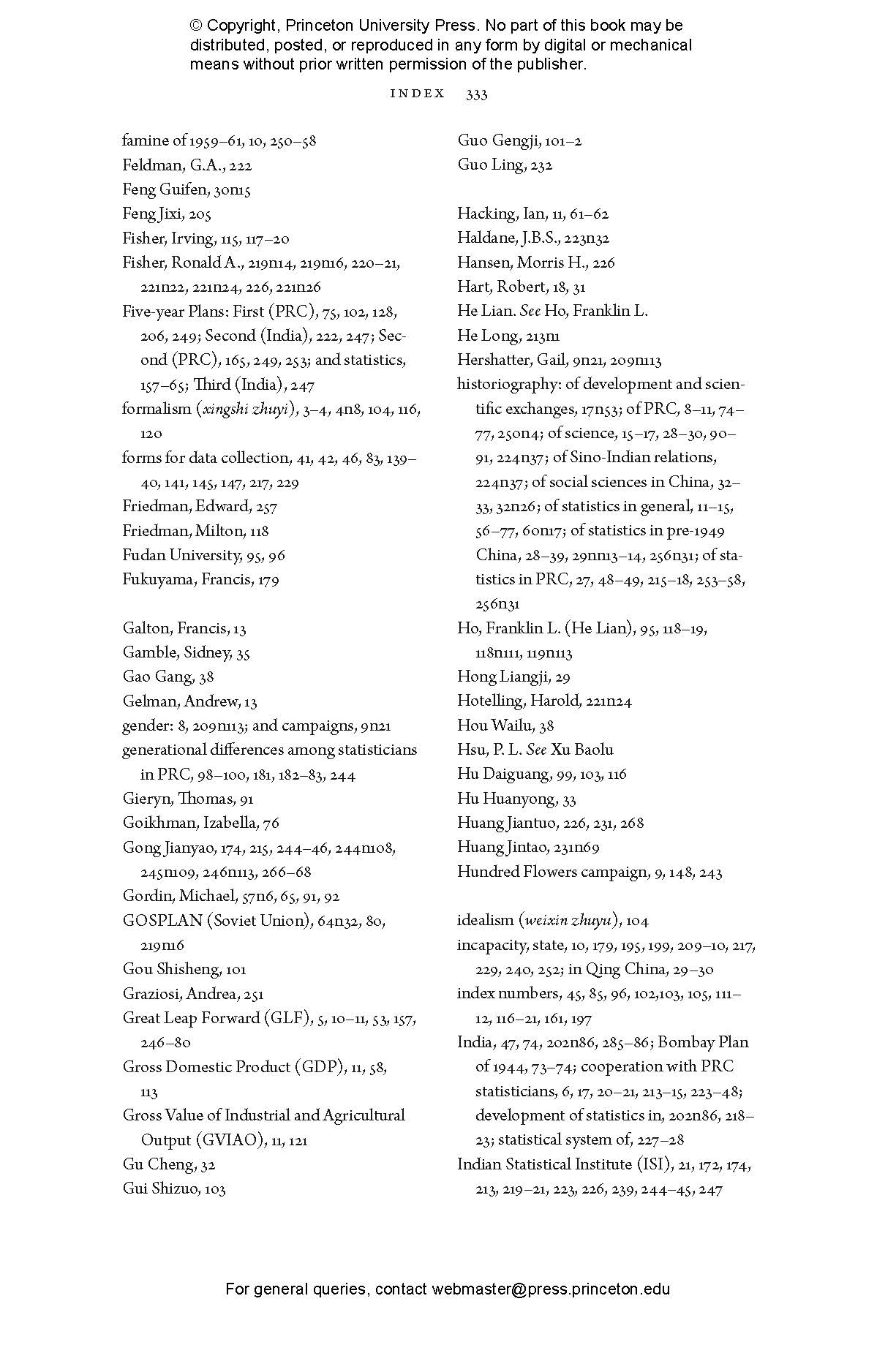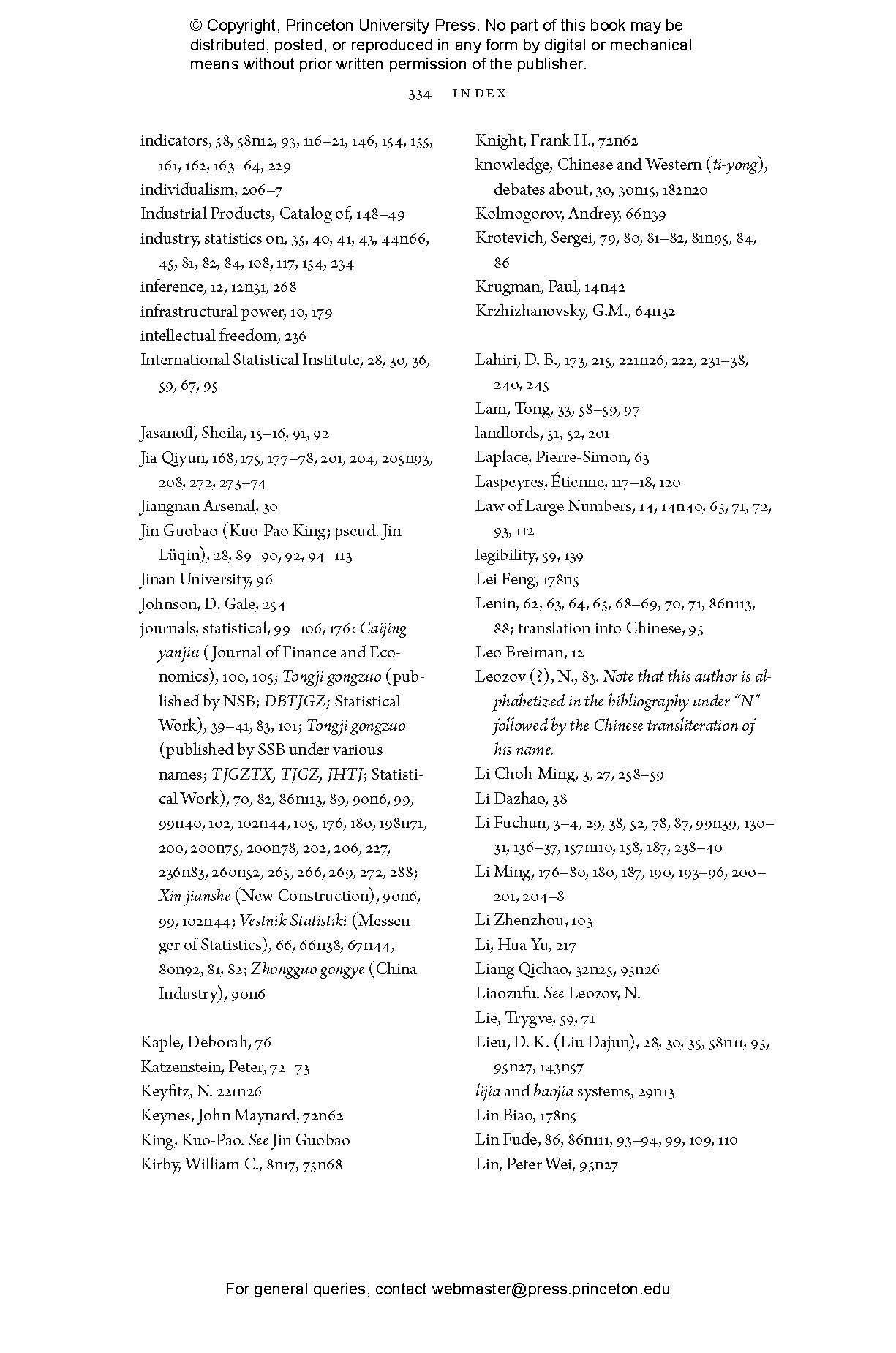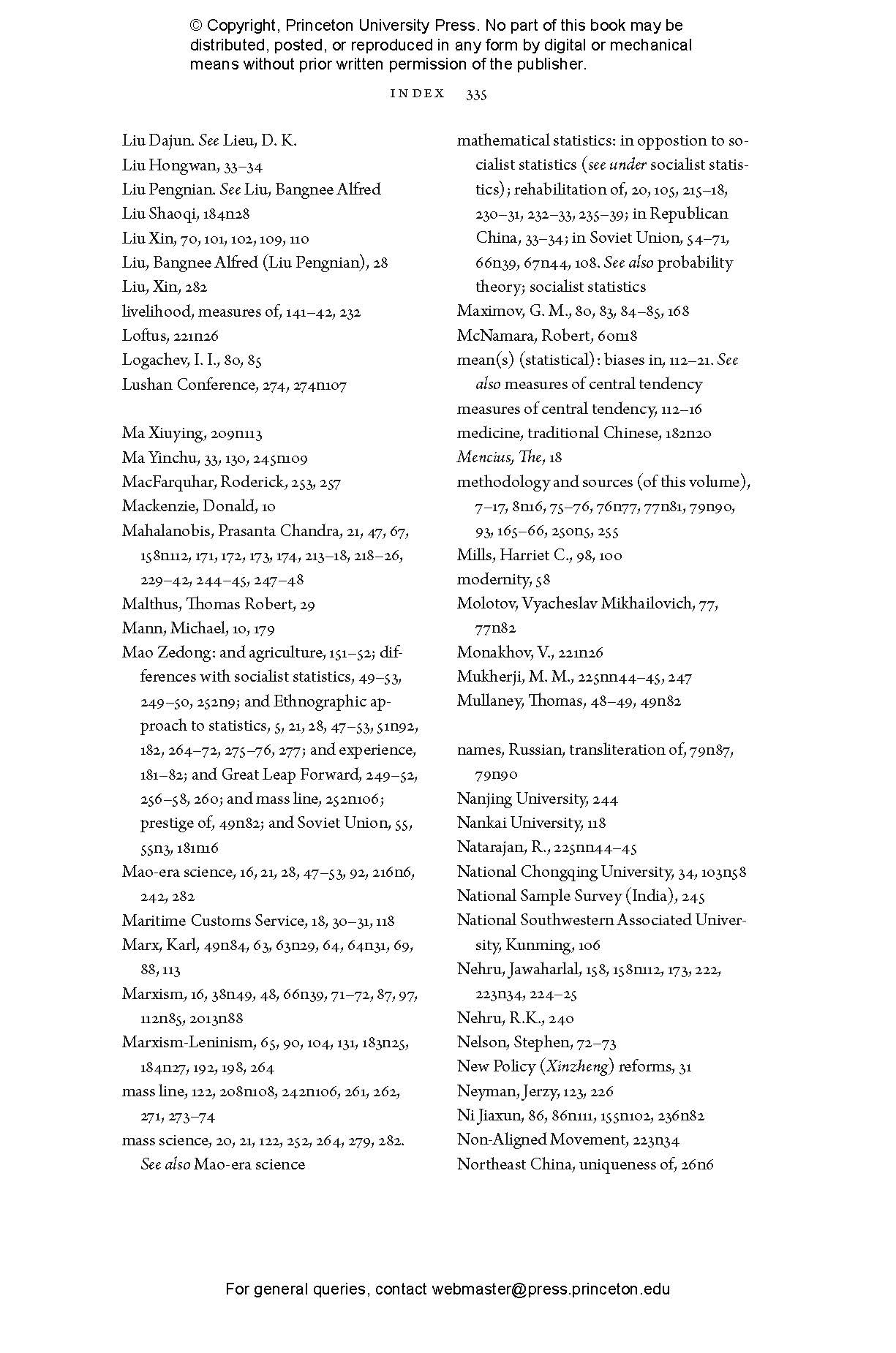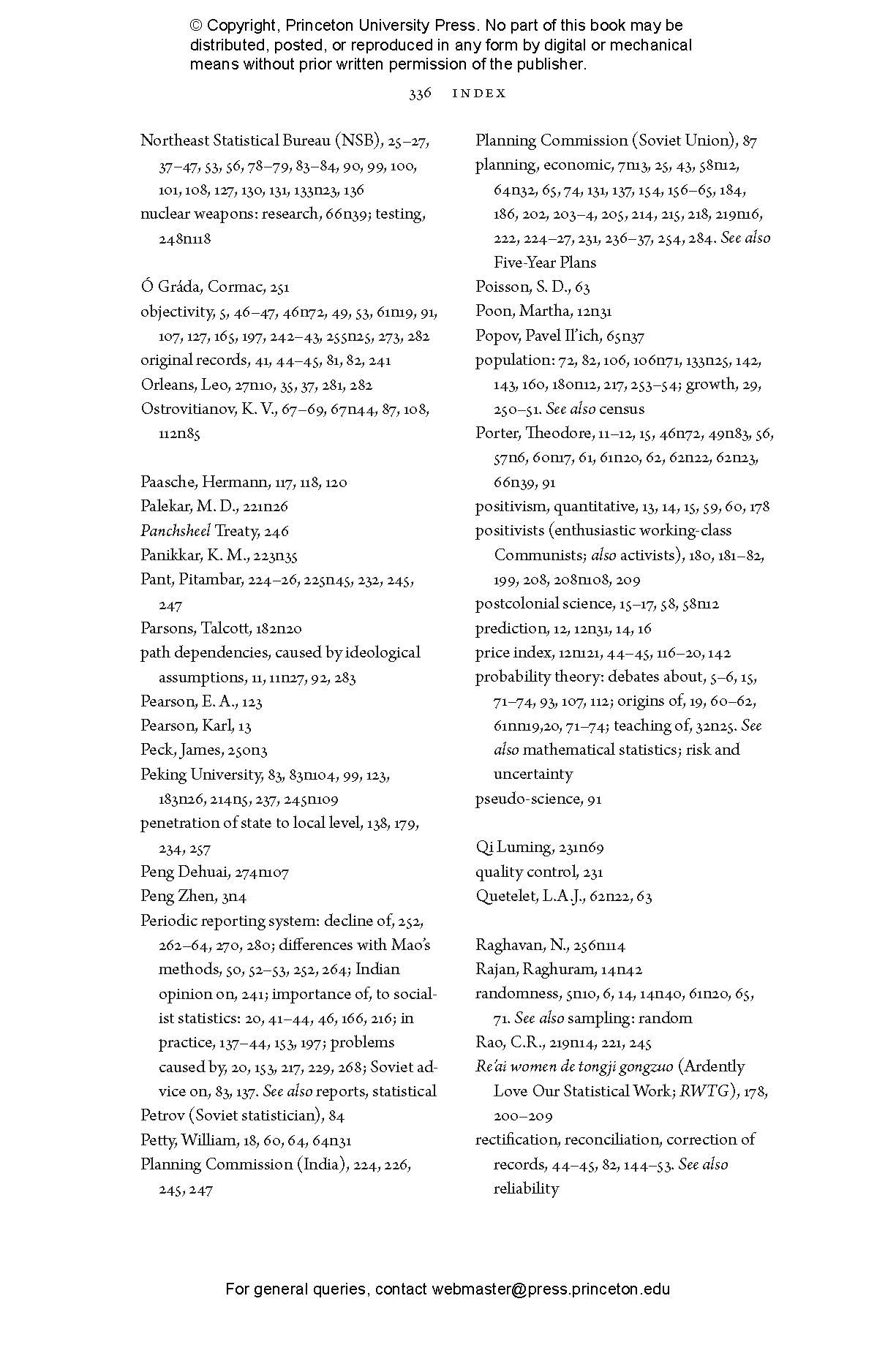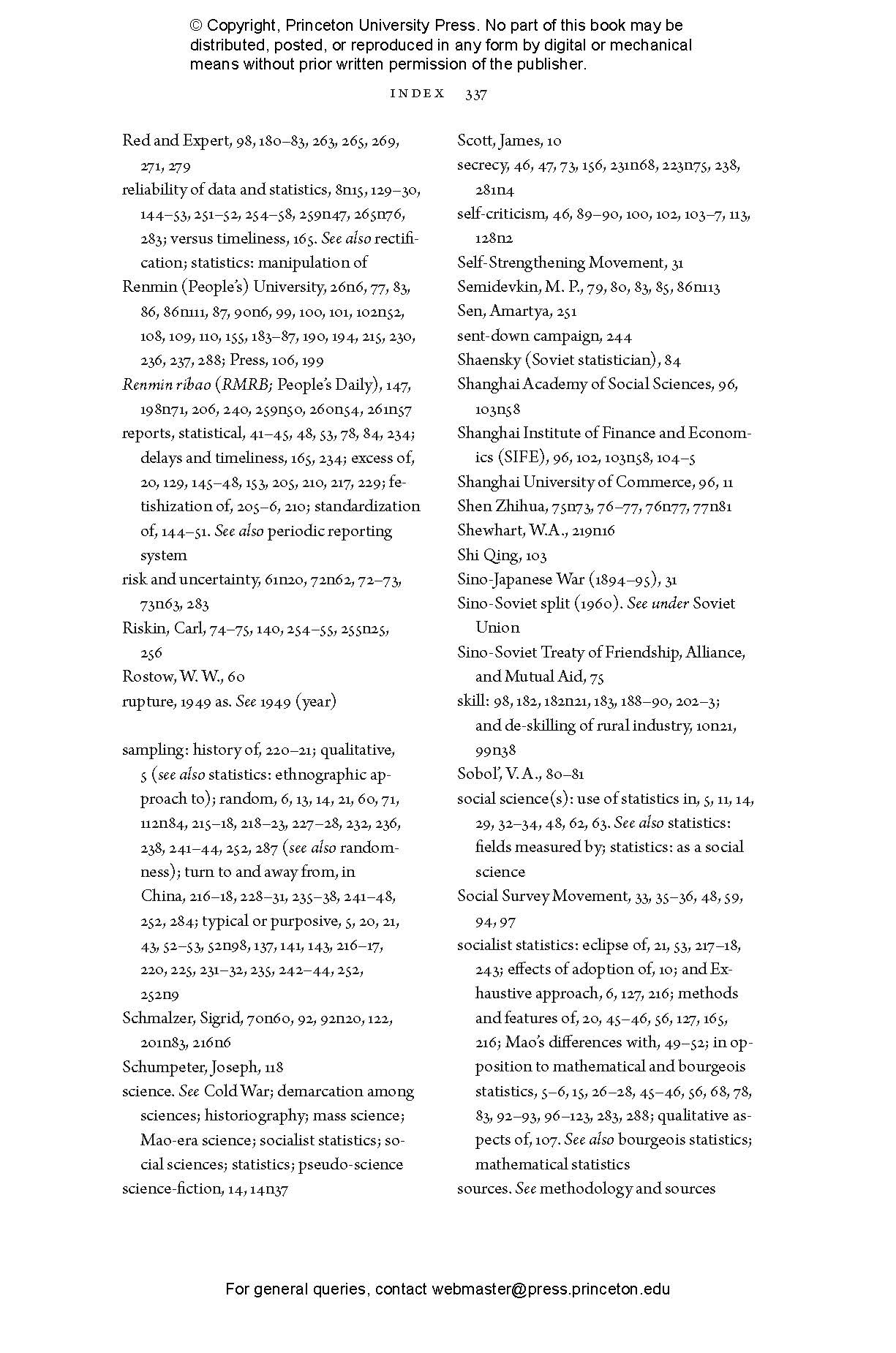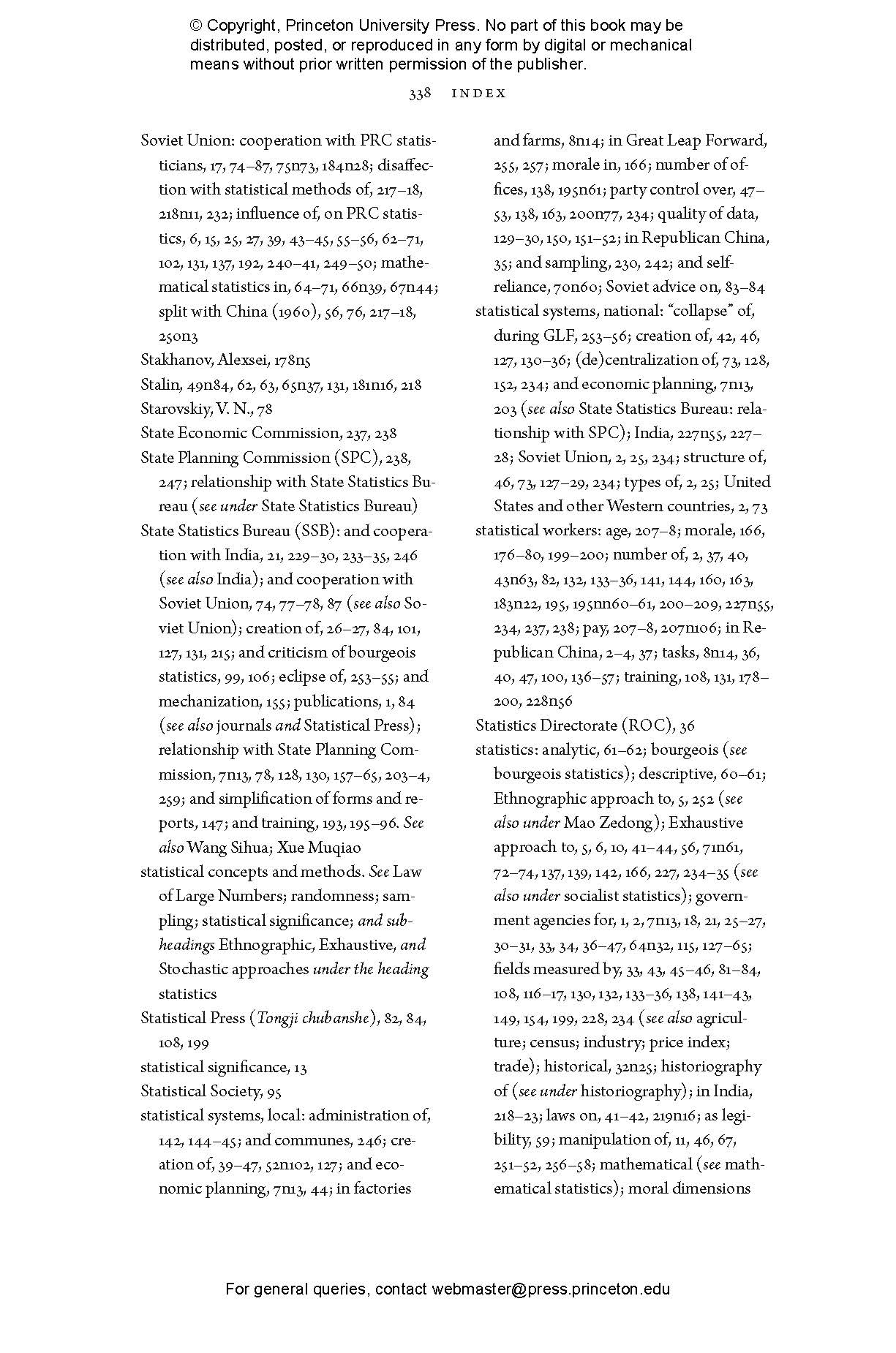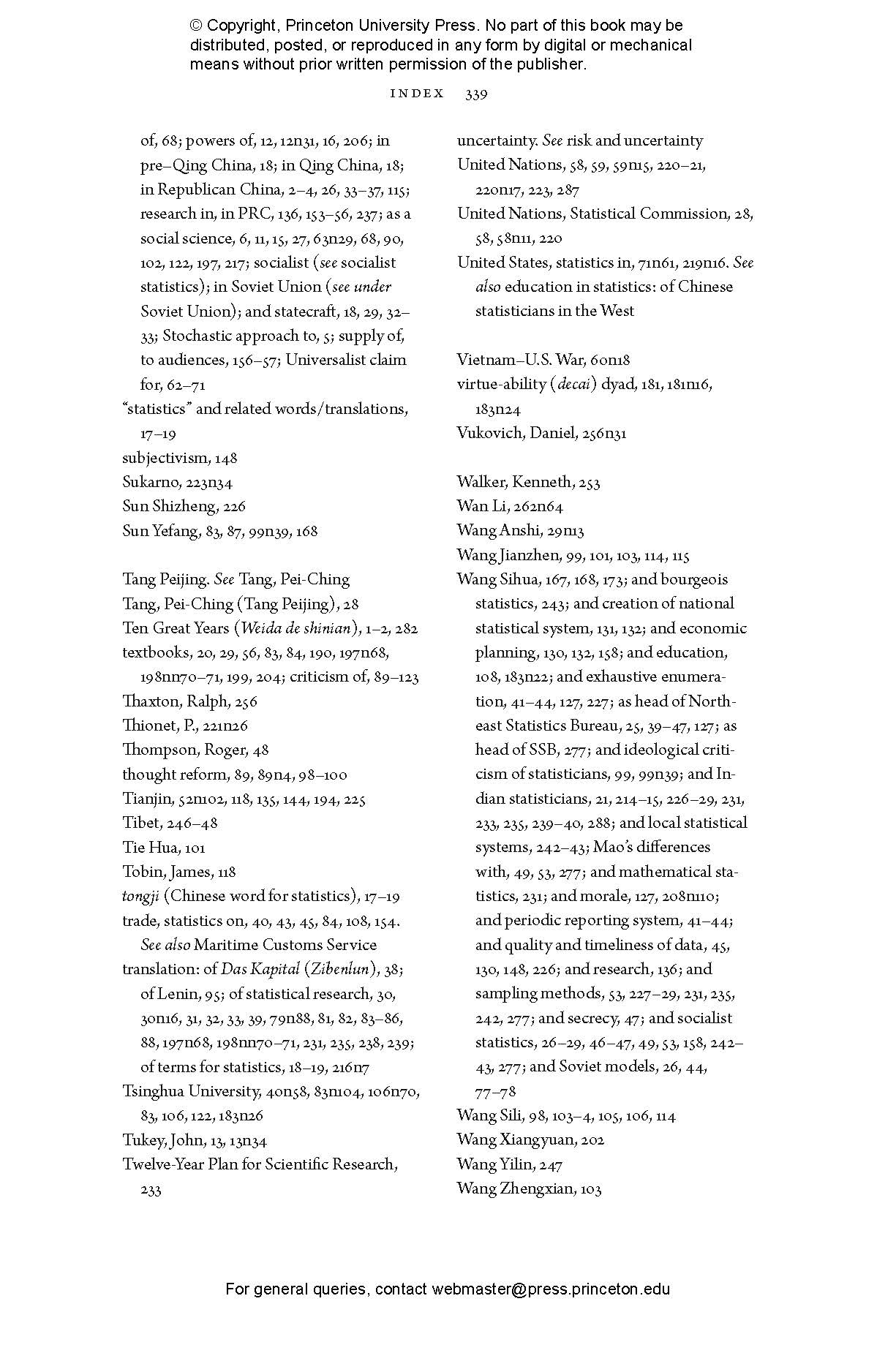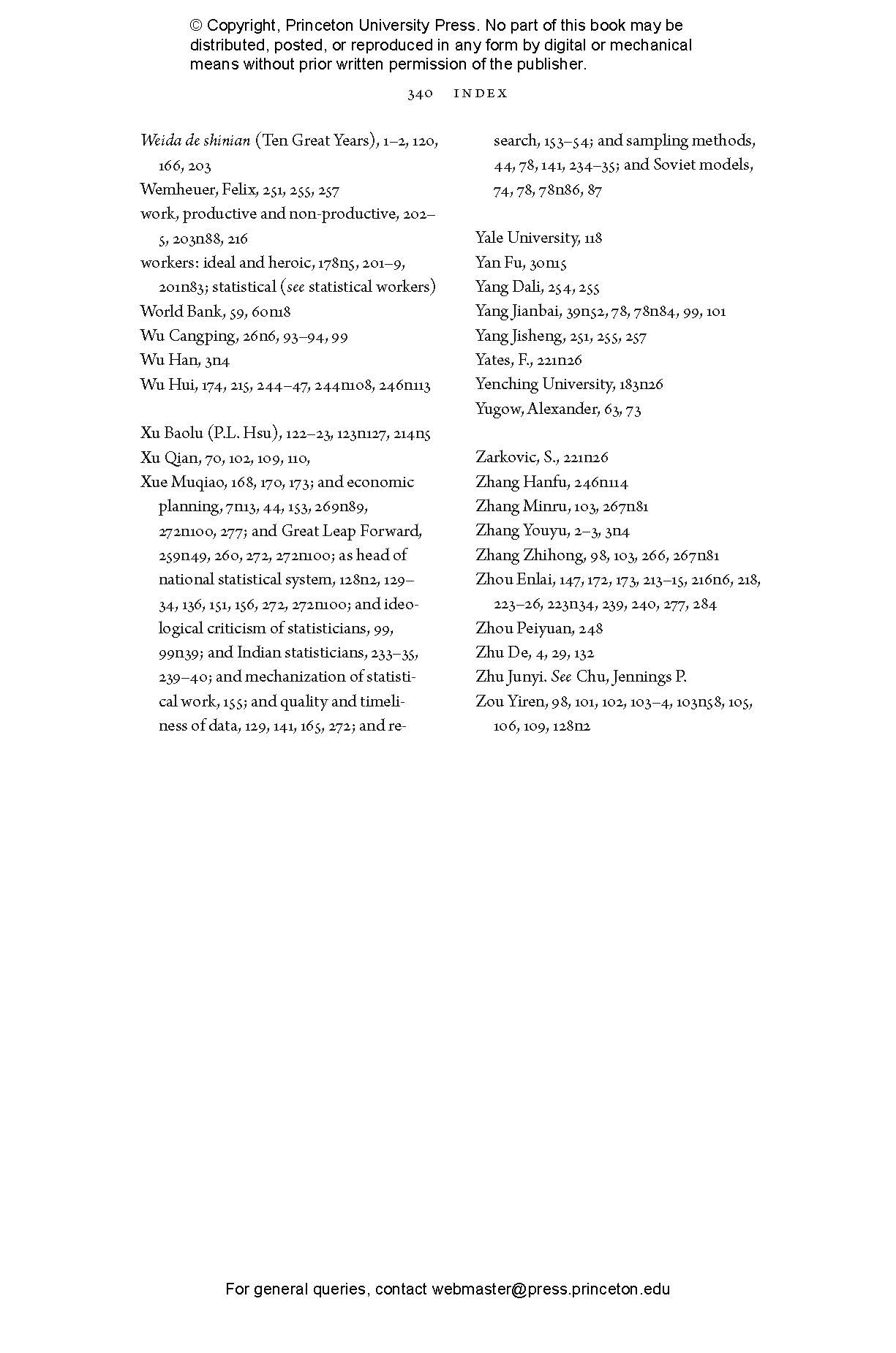In 1949, at the end of a long period of wars, one of the biggest challenges facing leaders of the new People’s Republic of China was how much they did not know. The government of one of the world’s largest nations was committed to fundamentally reengineering its society and economy via socialist planning while having almost no reliable statistical data about their own country. Making It Count is the history of efforts to resolve this “crisis in counting.” Drawing on a wealth of sources culled from China, India, and the United States, Arunabh Ghosh explores the choices made by political leaders, statisticians, academics, statistical workers, and even literary figures in attempts to know the nation through numbers.
Ghosh shows that early reliance on Soviet-inspired methods of exhaustive enumeration became increasingly untenable in China by the mid-1950s. Unprecedented and unexpected exchanges with Indian statisticians followed, as the Chinese sought to learn about the then-exciting new technology of random sampling. These developments were overtaken by the tumult of the Great Leap Forward (1958–61), when probabilistic and exhaustive methods were rejected and statistics was refashioned into an ethnographic enterprise. By acknowledging Soviet and Indian influences, Ghosh not only revises existing models of Cold War science but also globalizes wider developments in the history of statistics and data.
Anchored in debates about statistics and its relationship to state building, Making It Count offers fresh perspectives on China’s transition to socialism.
"Arunabh Ghosh could not have imagined how timely his book would be when he set out more than a decade ago on his research project. But Making It Count, an academic work published by Princeton University Press examining the history of statistics in China, lands at a time when the world is wondering: How does Beijing collect data, and what did it know about COVID-19 and when?"—Melissa Chan, Foreign Policy
"[Ghosh] deftly explores deeper questions about how state-making unfolded during the early years of the PRC, how ideology came to permeate every facet of the governing apparatus, and how strategies of enumeration are invariably bound, in complex ways, to the expression of political power. As such, Making It Count is an essential addition to any reading list on PRC history, as well to research methods in the social sciences and the humanities."—Patricia M. Thornton, China Quarterly
"A remarkably well-researched and well-written book."—Kristin Shi-Kupfer, MERICS China Briefing
"By mining rich archival materials in China, India, and the United States, and by balancing detailed descriptions of statistical work in the early PRC with lucid historiographical discussions on statistics, data science, and modern China, Ghosh has given us an exemplary case study of the social and political construction of sciences—natural or social—in the transnational context of the early Cold War."—Zuoyue Wang, Isis
"The book presents an erudite history of China’s 1950s statistics system and the discussions about the role of statistics in the PRC. It delves into the writings of the actors at the time, explores the context of their writings and actions, and extracts a narrative that makes sense of historical developments. . . . Much of the book is readily accessible to a wider audience and highly informative thanks to its richness of details. It is a must read for academics interested in the PRC’s statistical system."—Carsten Holz, The China Journal
"In this fascinating account of states and statistics in the early People’s Republic of China (PRC), Arunabh Ghosh explores the statistical agencies of a state with revolutionary aspirations but limited capacity to enumerate the society that it sought to transform. Making It Count stands out among the growing field of research conducted by historians on the society and politics of China in the 1950s."—Mark Frazier, Journal of Chinese Political Science
"Essential reading for any historian of the PRC in the twentieth century, and it likewise provides a model for an increasingly globalized history of statistics that (rightly) decenters Europe and the United States."—Thomas A. Stapleford, History of Political Economy
"[Making It Count] brilliantly shows a version of transcultural history beyond the usual China-Europe narrative."—Andrea Breard, East Asian Science, Technology, and Medicine
"A welcome addition to the literature on socialist epistemology and statecraft, part of an expanding field that is helping us understand the ways in which scholars and bureaucrats in various fields sought to accommodate the ideological dictates of Marxism-Leninism and how this impacted governance in the PRC, USSR, and elsewhere."—Jeremy Friedman, American Historical Review
"Ghosh’s rigorously researched book will appeal to more than just researchers interested in the history of statistics. Scholars specializing in the PRC and its governance will also find the book extremely informative, as it provides a detailed account of the making of the PRC’s statistical bureaucracy. With its copious references, it can also be used to decipher economic statistics published by the PRC. Reading the book cover-to-cover is a rewarding experience."—Yi-Tang Lin, East Asian Science, Technology and Society: An International Journal
"Ghosh's book is an important contribution because the philosophy behind the statistical research is very poorly understood and the history of how statistics has evolved to the position that it now occupies is neither taught nor known even among the practitioners. The contribution of the book, while it looks at China specifically, is not only that it enables us to study the philosophy behind the statistical work in China but to see the ideological or philosophical underpinnings to much of statistical work in general."—Branko Milanovic, Global Inequality and More 3.0
"The most illuminating point that Ghosh makes here . . . is that it would be wrong to assume homogeneity and stability in what ’Socialist statistics’ may have been and meant for its practitioners."—Bian He, Historical Studies in the Natural Sciences
"Engaging with at least three important fields in contemporary history, Ghosh’s book is sure to meet with wide interest among historians of China, Asia, as well as intellectual historians and historians of science."—Sebastian Veg, Journal of Asian Studies
"Ghosh deftly exposes the assumptions, beliefs, and fears embedded in the systems of counting that shaped so much of political, social, and economic life then and continue to influence our lives today."—Jeremy Wallace, Journal of Development Studies
"Ghosh presents intriguing lessons on the relationship between a country’s ability to achieve developmental milestones and its data collection and analysis methods. His work sets a great precedent for future scholars and governments who might want to explore their statistical backgrounds to understand their history better."—Jiarui Wu, China Report
"Statistics and the truth rarely line up, leaving us in the dark. That’s why this book, which tells the history of Communist China’s early challenge with finding out even the most basic numbers, is so unexpectedly fascinating."—Alec Ash, The Wire China
"Focusing on the development of statistics in the 1950s, Making It Count is an uncommon contribution to the history of the People’s Republic of China. Drawing from documents, letters, institutional archives, memoirs, oral histories, and newspaper reports, this is essential reading for students of history, sociology, economics, and politics, as well as scholars and policymakers."—Wang Hui, Tsinghua University
"Making It Count offers a deeply absorbing and inventively researched account of the making of China's statistical system, and a riveting look at the intersections between knowledge and state formation in the 1950s. By deftly weaving in comparisons with Russia and India, this book tells a story of how intellectual influences traveled but were then modified by the contexts of the states where they were embedded."—Pratap Bhanu Mehta, Ashoka University
"This is one of the most original histories of modern China to appear in recent years. Exploring transnational links between postwar China and India, Making It Count shows how the two nations exchanged ideas of social development, and how mathematics became one of the most potent and damaging political tools of a modernizing nation. Based on intense research, this groundbreaking work will stimulate debates for a long time to come."—Rana Mitter, author of Forgotten Ally
"A fascinating, original look at the role of statistics in the formation of the early socialist state in China, Making It Count makes an insightful, important contribution to early PRC studies. With impeccable scholarship and access to archives in China, India, and the West, this valuable book not only tells us much about China, but also contributes to our understanding of the history of global science in the twentieth century."—Peter C. Perdue, Yale University
"This detailed and fact-filled book explores the practice of statistics in the People’s Republic of China between the founding of the regime and the launching of the Great Leap Forward. With superior writing and organizational skills, Ghosh has written the first full study that places at its center the formal institutionalization of statistics as a governing technology in socialist China."—Wen-hsin Yeh, University of California, Berkeley
